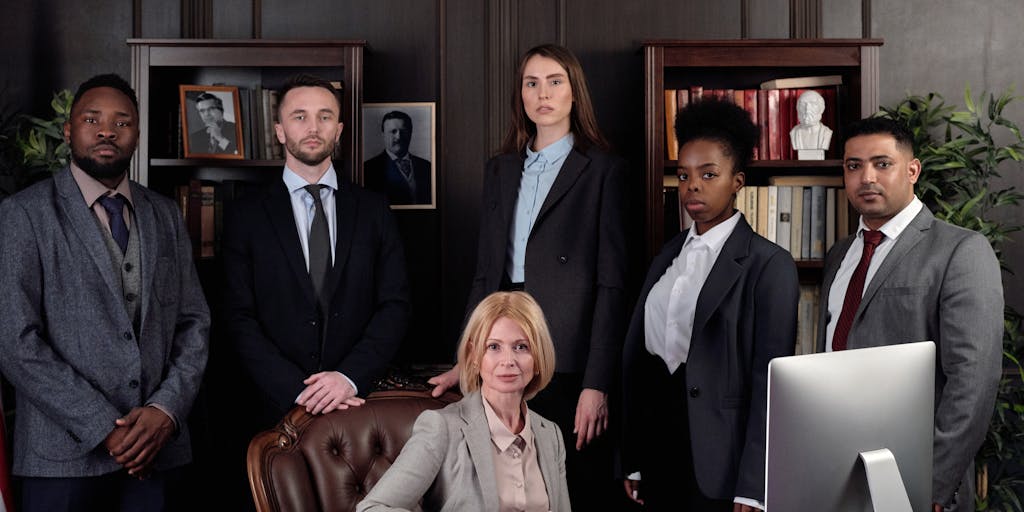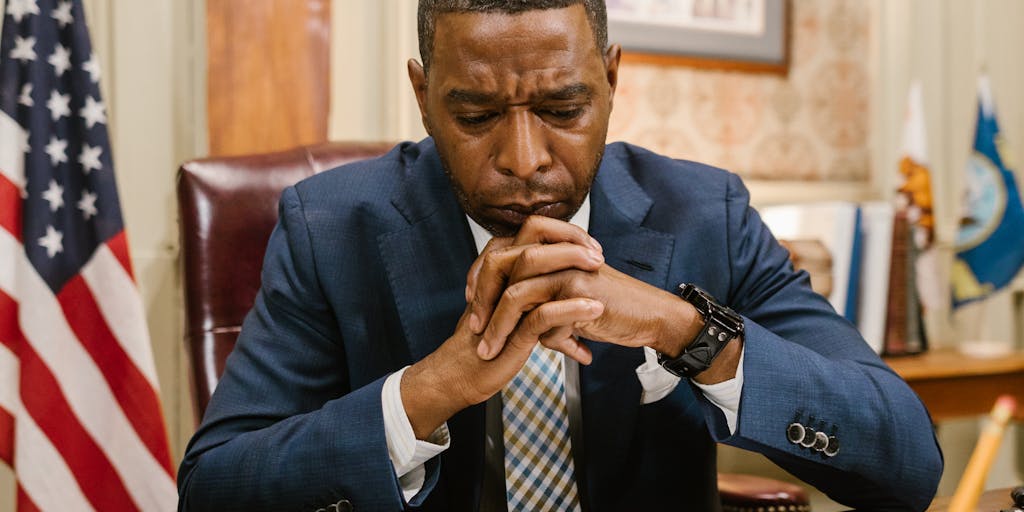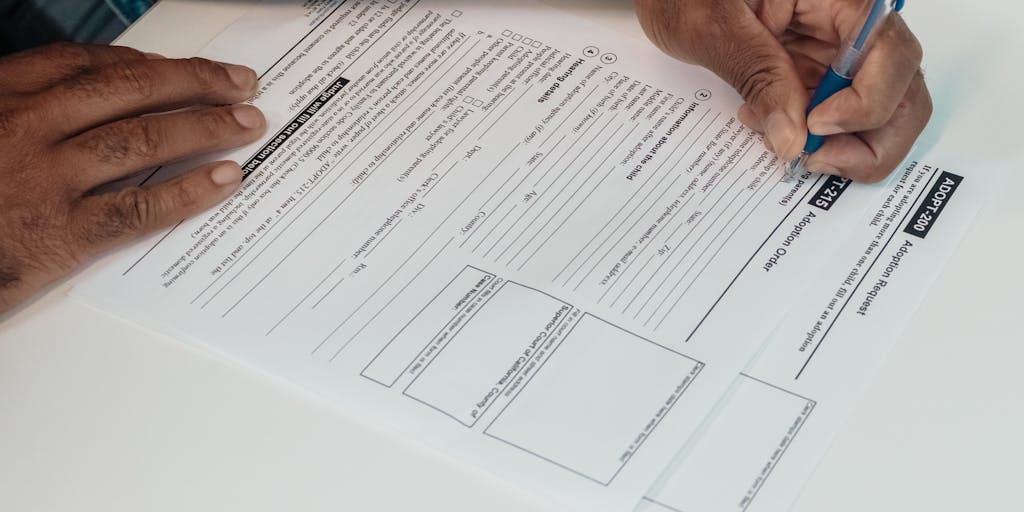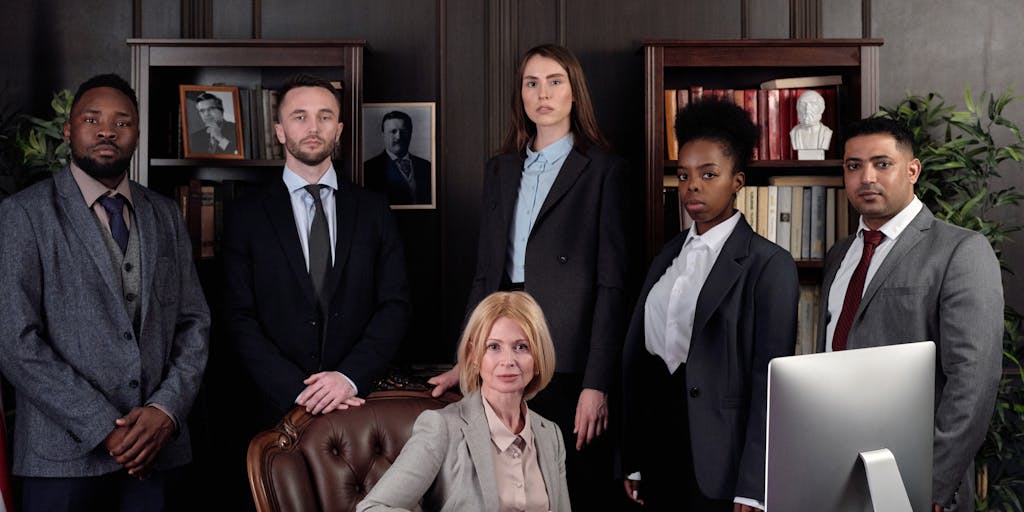When we think about the legal profession, images of courtroom dramas and high-stakes negotiations often come to mind. But have you ever wondered just how lucrative a career in law can be, especially in a country like South Korea? The landscape of legal salaries in Korea is as dynamic as the country itself, reflecting not only the demand for legal expertise but also the complexities of its economy and culture. Let’s dive into the world of South Korean lawyers and uncover what makes some of them the highest paid in the field.
Lawyer Salaries

In South Korea, the salary of a lawyer can vary significantly based on several factors, including experience, specialization, and the type of firm they work for. On average, a newly qualified lawyer can expect to earn around 50 million to 70 million KRW (approximately $42,000 to $59,000) annually. However, as they gain experience and build their reputation, this figure can skyrocket.
For instance, lawyers working in prestigious law firms or those who specialize in high-demand areas such as corporate law, intellectual property, or international arbitration can earn upwards of 200 million KRW (about $168,000) per year. In fact, some of the top-tier lawyers in South Korea can command salaries exceeding 500 million KRW (around $420,000) annually, especially if they are involved in high-profile cases or serve as legal advisors to major corporations.
To put this into perspective, consider the case of a lawyer who successfully represented a multinational corporation in a complex merger. Not only did they earn a substantial fee for their services, but their reputation also soared, leading to more lucrative opportunities in the future. This cycle of success is not uncommon in the legal field, where a single high-stakes case can significantly boost a lawyer’s earnings and career trajectory.
Korean Lawyer Salary

Understanding the salary structure of Korean lawyers requires a closer look at the various tiers within the profession. The legal landscape in South Korea is characterized by a mix of public and private sector opportunities, each offering different compensation packages.
- Public Sector Lawyers: Those who work for government agencies or public interest organizations typically earn less than their private sector counterparts. Their salaries can range from 40 million to 60 million KRW ($33,600 to $50,400) annually. However, many are drawn to this path due to the job security and the opportunity to make a meaningful impact on society.
- Corporate Lawyers: Lawyers employed by large corporations or law firms often enjoy the highest salaries. As mentioned earlier, these professionals can earn between 200 million to 500 million KRW ($168,000 to $420,000) annually, depending on their expertise and the complexity of the cases they handle.
- Solo Practitioners: Many lawyers choose to set up their own practices. While this path can be rewarding, it often comes with financial uncertainty, especially in the early years. Their earnings can vary widely, from 30 million to 100 million KRW ($25,200 to $84,000) annually, depending on their client base and the types of cases they take on.
It’s fascinating to see how the legal profession in South Korea mirrors the broader economic trends of the country. As the economy continues to grow and evolve, so too does the demand for legal services, which in turn influences salary structures. For instance, with the rise of technology and digital businesses, lawyers specializing in tech law are becoming increasingly sought after, leading to higher salaries in that niche.
In conclusion, the world of legal salaries in South Korea is as diverse as the country itself. Whether you’re a budding lawyer or simply curious about the profession, understanding these dynamics can provide valuable insights into what it takes to succeed in this competitive field. So, what do you think? Is the pursuit of a legal career worth the potential rewards? The answer may just lie in your passion for justice and the impact you wish to make in the world.
How much does a Korean Lawyer make?
Have you ever wondered what it’s like to walk in the shoes of a lawyer in South Korea? The legal profession is often seen as a prestigious and lucrative career, but just how much do these professionals earn? On average, a Korean lawyer can expect to make around 50 million to 100 million KRW annually, which translates to approximately 40,000 to 80,000 USD. However, this figure can vary significantly based on several factors, including experience, specialization, and the type of law practiced.
For instance, newly minted lawyers, often referred to as “associates,” may start with salaries closer to 30 million KRW (about 25,000 USD). As they gain experience and build their reputation, their earnings can skyrocket. Senior partners in prestigious law firms can earn upwards of 200 million KRW (around 160,000 USD) or more, especially if they handle high-profile cases or work in corporate law.
Moreover, the legal landscape in South Korea is evolving. With the rise of technology and globalization, lawyers specializing in areas like intellectual property, international trade, and cyber law are increasingly in demand, often commanding higher salaries. According to a study by the Korean Bar Association, lawyers in these fields can earn significantly more than their peers in traditional practices.
What are Top 10 Highest Paying Cities for Korean Lawyer Jobs
When it comes to maximizing earnings as a lawyer in South Korea, location plays a crucial role. Some cities offer more lucrative opportunities than others. Here’s a look at the top 10 highest paying cities for Korean lawyer jobs:
- Seoul – As the capital and largest city, Seoul is home to the majority of top law firms and corporate headquarters, making it the highest-paying city for lawyers.
- Busan – Known for its port and trade, Busan offers competitive salaries, especially for lawyers specializing in maritime law.
- Incheon – With its growing economy and proximity to Seoul, Incheon is becoming an attractive location for legal professionals.
- Daegu – This city has a strong industrial base, leading to demand for corporate lawyers.
- Gwangju – Gwangju’s focus on technology and innovation has created opportunities for lawyers in tech-related fields.
- Ulsan – As a hub for the automotive and shipbuilding industries, Ulsan offers high salaries for lawyers in corporate and environmental law.
- Seongnam – This city is part of the Seoul Capital Area and has a growing number of businesses requiring legal services.
- Jeonju – Known for its cultural heritage, Jeonju is also seeing growth in legal opportunities.
- Changwon – With its industrial focus, Changwon attracts lawyers specializing in labor and employment law.
- Cheongju – As a developing city, Cheongju is becoming a new frontier for legal professionals.
Each of these cities presents unique opportunities and challenges, but they all share a common thread: a growing demand for legal expertise. If you’re considering a legal career in South Korea, these cities could be your ticket to a rewarding and financially stable future.
Top Searched Cities For Korean Lawyer Salaries
Curious about where people are looking for information on lawyer salaries in South Korea? The internet is a treasure trove of insights, and certain cities consistently top the search lists. Here are some of the top searched cities for Korean lawyer salaries:
- Seoul – Unsurprisingly, Seoul leads the pack, with many aspiring lawyers eager to understand the earning potential in the capital.
- Busan – As the second-largest city, Busan attracts attention for its unique legal market.
- Incheon – The growth of Incheon International Airport and surrounding businesses has piqued interest in legal salaries.
- Daegu – With its industrial base, many are curious about the legal landscape here.
- Gwangju – The city’s focus on technology has led to increased searches for tech law salaries.
- Ulsan – The automotive industry’s presence makes Ulsan a hotspot for legal inquiries.
- Seongnam – As a growing business hub, Seongnam garners interest from future lawyers.
- Jeonju – The cultural city is also becoming a point of interest for legal professionals.
- Changwon – Searches for labor law salaries are common here due to its industrial focus.
- Cheongju – As a developing city, Cheongju is gaining traction among those exploring legal careers.
These cities not only reflect the current job market but also highlight where aspiring lawyers are focusing their career aspirations. Understanding the salary landscape in these areas can help you make informed decisions about your future in law.
Top Searched States For Korean Lawyer Salaries
Have you ever wondered where the highest-paid lawyers in South Korea are located? The landscape of legal salaries can vary significantly across different regions, influenced by factors such as the local economy, demand for legal services, and the concentration of industries. In South Korea, certain states stand out when it comes to lucrative legal careers.
According to recent data, Seoul tops the list, not just because it’s the capital, but also due to its status as the economic and cultural hub of the country. The concentration of multinational corporations, government agencies, and prestigious law firms creates a competitive environment that drives salaries upward. For instance, a corporate lawyer in Seoul can earn an average salary of around ₩100 million (approximately $85,000) annually, with top-tier firms offering even more.
Following Seoul, Busan and Incheon also show promising salary figures. Busan, being a major port city, has a growing demand for maritime and trade law specialists, while Incheon, with its international airport and free economic zone, attracts lawyers specializing in international business and immigration law. In these cities, salaries can range from ₩70 million to ₩90 million ($60,000 to $76,000), depending on experience and specialization.
As you consider these figures, it’s essential to think about the lifestyle and cost of living in these areas. For example, while Seoul offers higher salaries, it also comes with a higher cost of living. Balancing salary expectations with living expenses is crucial for anyone contemplating a legal career in South Korea.
Recently Searched Korean Lawyer Salaries
In the ever-evolving legal landscape, staying updated on salary trends is vital for both aspiring lawyers and seasoned professionals. Recently, searches for Korean lawyer salaries have surged, reflecting a growing interest in the legal profession and its financial prospects. But what are the numbers telling us?
Recent reports indicate that the average salary for a newly qualified lawyer in South Korea is around ₩50 million (approximately $42,500) per year. However, this figure can vary widely based on the type of law practiced. For instance, lawyers specializing in intellectual property or corporate law often command higher starting salaries, sometimes exceeding ₩70 million ($60,000).
Moreover, the demand for legal expertise in emerging fields such as technology and environmental law is on the rise. This shift is reflected in the salaries of lawyers who are well-versed in these areas, with some earning upwards of ₩90 million ($76,000) as they gain experience and build their reputations.
Interestingly, the trend of remote work has also influenced salary expectations. Many firms are now offering competitive salaries to attract talent from across the country, allowing lawyers to work from regions with lower living costs while still earning a city-level salary. This flexibility can be a game-changer for many in the profession.
Korean Lawyer Salaries
Understanding the salary landscape for lawyers in South Korea is not just about numbers; it’s about the stories behind those figures. The legal profession here is diverse, encompassing various fields such as criminal law, family law, and corporate law, each with its own salary range.
On average, a lawyer in South Korea can expect to earn between ₩50 million and ₩100 million ($42,500 to $85,000) annually, depending on their area of expertise and experience level. For example, a seasoned criminal defense attorney may earn around ₩80 million ($68,000), while a partner at a prestigious law firm could see their salary soar to over ₩150 million ($127,000).
Moreover, the legal profession in South Korea is increasingly competitive. With the rise of law schools and the number of graduates entering the field, it’s essential for new lawyers to differentiate themselves. Specializing in niche areas, such as cyber law or international arbitration, can lead to higher salaries and more job opportunities.
As you reflect on these insights, consider how the legal profession aligns with your aspirations. Whether you’re a student contemplating law school or a professional seeking to advance your career, understanding salary trends can help you make informed decisions about your future in the legal field.
How much does a Lawyer make in Seoul, South Korea?

Have you ever wondered what it’s like to be a lawyer in one of the most vibrant cities in the world? Seoul, South Korea, is not just a hub of technology and culture; it’s also home to a thriving legal profession. The financial rewards for lawyers here can be quite impressive, reflecting the high stakes and complexities of the legal landscape.
₩107,014,079 (KRW)/yr
On average, a lawyer in Seoul earns around ₩107,014,079 KRW per year. This figure can vary significantly based on several factors, including the lawyer’s area of specialization, years of experience, and the type of firm they work for. For instance, those working in prestigious international law firms or corporate law often see salaries that exceed this average, sometimes reaching upwards of ₩200 million KRW annually.
To put this into perspective, consider the story of Jisoo, a young attorney who graduated from one of Korea’s top law schools. After joining a leading corporate law firm, she quickly climbed the ranks, and within just a few years, her salary had doubled. Jisoo’s experience highlights how the legal profession in Seoul can be both rewarding and competitive.
₩51,449.08 (KRW)/hr
If we break it down further, the hourly wage for a lawyer in Seoul averages around ₩51,449.08 KRW. This hourly rate can also fluctuate based on the lawyer’s expertise and the nature of the cases they handle. For example, a lawyer specializing in intellectual property rights may charge significantly more per hour than one focusing on family law.
Imagine you’re in a bustling café in Gangnam, where the aroma of freshly brewed coffee fills the air. You overhear a conversation between two lawyers discussing their latest cases. One mentions charging clients ₩150,000 KRW per hour for his services, while the other, who has just started her practice, is still working at a lower rate to build her clientele. This scenario illustrates the diverse earning potential within the legal field in Seoul.
Moreover, the demand for legal services in South Korea continues to grow, driven by factors such as globalization, increased foreign investment, and a more complex regulatory environment. As a result, the legal profession is not only lucrative but also offers a dynamic career path for those willing to navigate its challenges.
In conclusion, being a lawyer in Seoul can be financially rewarding, with an average annual salary of ₩107,014,079 KRW and an hourly rate of ₩51,449.08 KRW. Whether you’re considering a career in law or simply curious about the profession, it’s clear that the legal landscape in South Korea is both promising and multifaceted.
₩7,244,853 (KRW)/yr
Imagine waking up every day knowing that your expertise in law could earn you a comfortable living. In South Korea, the average salary for a lawyer is around ₩7,244,853 (KRW) per year. This figure might seem modest compared to other professions, but it’s essential to consider the context. Many lawyers start their careers in public service or smaller firms, where salaries can be lower. However, as they gain experience and build their reputations, their earning potential can skyrocket.
For instance, a young attorney working in a bustling city like Seoul may initially earn less, but with dedication and a strong network, they can transition into high-stakes corporate law or specialized fields like intellectual property, where the financial rewards are significantly higher. It’s a journey that requires patience and resilience, much like climbing a mountain—each step brings you closer to the summit.
₩118,384,043 (KRW)
Now, let’s talk about the top tier of legal professionals in South Korea. Some of the highest-paid lawyers can earn upwards of ₩118,384,043 (KRW) annually. These individuals often work for prestigious law firms or serve as in-house counsel for major corporations. Their expertise in complex legal matters, such as mergers and acquisitions or international trade law, makes them invaluable assets to their clients.
Take, for example, a senior partner at a leading law firm in Seoul. With years of experience and a track record of successful cases, they command a salary that reflects their expertise and the high stakes involved in their work. This level of compensation is not just about the money; it’s a recognition of the hard work, long hours, and the intellectual rigor required to navigate the intricate legal landscape.
11 %
Have you ever wondered how the legal profession in South Korea is evolving? Recent studies indicate that the demand for legal services is growing, with an estimated increase of 11% in the number of lawyers over the past few years. This growth is driven by various factors, including globalization, the rise of technology, and an increasingly complex regulatory environment.
As businesses expand their operations internationally, the need for legal expertise in areas like compliance and international law becomes paramount. This trend not only creates more job opportunities but also pushes salaries higher as firms compete for top talent. It’s a dynamic landscape, and for aspiring lawyers, it’s an exciting time to enter the field.
In conclusion, while the average salary for lawyers in South Korea may start at a modest level, the potential for growth and high earnings is significant. With dedication, strategic career moves, and a keen understanding of the evolving legal market, you can carve out a successful and lucrative career in law. So, if you’re considering this path, remember: every great lawyer started somewhere, and your journey could lead to remarkable heights.
How Much Should You Be Paid?
When it comes to the legal profession in South Korea, the question of compensation can be as complex as the law itself. You might wonder, “What is a fair salary for a lawyer?” The answer often depends on various factors, including experience, specialization, and the type of firm you work for. According to a 2022 report by the Korean Bar Association, the average annual salary for a lawyer in South Korea is around 50 million KRW (approximately $42,000). However, this figure can vary significantly.
For instance, newly minted lawyers starting their careers in smaller firms may earn as little as 30 million KRW ($25,000), while those in prestigious firms or with specialized skills can command salaries exceeding 200 million KRW ($170,000) or more. It’s not uncommon for top-tier lawyers, especially those involved in corporate law or high-stakes litigation, to earn even higher figures, sometimes reaching upwards of 500 million KRW ($425,000).
So, how do you determine what you should be paid? Consider your area of expertise, the size and reputation of your firm, and your years of experience. Engaging in continuous professional development and networking can also enhance your earning potential. Remember, the legal field is competitive, and staying informed about industry trends can give you an edge in salary negotiations.
INTRODUCTION
Welcome to the fascinating world of law in South Korea, where the pursuit of justice intertwines with the pursuit of a lucrative career. If you’ve ever been curious about what it takes to become one of the highest-paid lawyers in this vibrant country, you’re in the right place. The legal landscape here is not just about courtroom battles; it’s also about navigating a complex web of regulations, cultural nuances, and economic factors.
In South Korea, the legal profession has evolved dramatically over the past few decades. With the rise of globalization and the increasing complexity of legal issues, the demand for skilled lawyers has surged. This has led to a competitive environment where the best and brightest can earn substantial salaries. But what does it really mean to be a top lawyer in Korea? Let’s explore the profiles of some of the highest-paid lawyers and what sets them apart.
Yong Seok Ahn
One name that often comes up in discussions about the highest-paid lawyers in South Korea is Yong Seok Ahn. Known for his expertise in corporate law and mergers and acquisitions, Ahn has built a reputation that commands respect and high fees. His journey to the top is a testament to the power of specialization and hard work.
Ahn graduated from Seoul National University, one of the most prestigious institutions in the country, and quickly made a name for himself at a leading law firm. His ability to navigate complex legal frameworks and provide strategic advice to multinational corporations has not only earned him a loyal client base but also a salary that reportedly exceeds 300 million KRW ($255,000) annually.
What can we learn from Ahn’s success? It’s clear that a combination of education, specialization, and networking plays a crucial role in achieving high earnings in the legal field. Ahn’s story serves as an inspiration for aspiring lawyers, reminding us that with dedication and the right focus, reaching the pinnacle of the profession is indeed possible.
Yong Jae Chang
When you think of the highest-paid lawyers in South Korea, one name that often comes to mind is Yong Jae Chang. Known for his expertise in corporate law and litigation, Chang has built a reputation that commands respect and, of course, a hefty paycheck. His clients range from multinational corporations to high-profile individuals, all seeking his guidance in navigating the complex legal landscape of South Korea.
What sets Chang apart is not just his legal acumen but also his ability to connect with clients on a personal level. He understands that legal issues can be daunting, and he approaches each case with a blend of professionalism and empathy. For instance, in a recent high-stakes merger case, Chang was able to negotiate terms that not only satisfied his clients but also fostered goodwill among the parties involved. This kind of strategic thinking is what has earned him a spot among the elite in the legal field.
According to a study by the Korean Bar Association, lawyers like Chang, who specialize in corporate law, can earn upwards of ₩1 billion (approximately $850,000) annually. This figure is a testament to the demand for skilled legal representation in a rapidly evolving business environment.
Christopher Joon Tae Cho
Another prominent figure in the realm of high-earning lawyers is Christopher Joon Tae Cho. With a background in international law, Cho has made a name for himself by representing clients in complex cross-border transactions and disputes. His fluency in both Korean and English allows him to bridge cultural and legal gaps, making him a sought-after attorney for foreign companies looking to invest in South Korea.
Cho’s approach to law is deeply rooted in understanding the unique needs of his clients. He often shares a story about a foreign client who was hesitant to enter the South Korean market due to regulatory concerns. Through careful analysis and strategic planning, Cho not only alleviated those fears but also helped the client successfully launch their business, resulting in significant profits. This kind of client-focused service is what has propelled Cho into the upper echelons of the legal profession.
In fact, a report from the Korean Legal Market Research Institute indicates that lawyers specializing in international law, like Cho, can earn between ₩800 million to ₩1.5 billion ($680,000 to $1.3 million) annually, depending on their clientele and case complexity. This financial success is a reflection of the increasing globalization of business and the need for expert legal guidance.
Sung Keuk Cho
Last but certainly not least, we have Sung Keuk Cho, a powerhouse in the field of intellectual property law. In an age where innovation drives the economy, Cho’s expertise in protecting patents and trademarks has made him an invaluable asset to tech companies and startups alike. His work often involves high-stakes litigation, where the outcome can significantly impact a company’s future.
What makes Cho’s story particularly compelling is his passion for helping inventors and creators safeguard their ideas. He often recounts a case where he represented a small startup against a large corporation accused of patent infringement. Through relentless dedication and strategic litigation, Cho not only won the case but also secured a lucrative settlement for his client, allowing them to thrive in a competitive market. This narrative illustrates the profound impact a skilled lawyer can have on the lives of their clients.
According to the Korean Intellectual Property Office, lawyers like Cho can earn between ₩900 million to ₩1.2 billion ($765,000 to $1 million) annually, reflecting the high demand for intellectual property expertise in a technology-driven world.
Tae Yeon Cho
When we think about the highest-paid lawyers in South Korea, one name that often comes to mind is Tae Yeon Cho. Known for his expertise in corporate law, Cho has represented some of the biggest conglomerates in the country, including Samsung and Hyundai. His ability to navigate complex legal landscapes has not only earned him a stellar reputation but also a hefty paycheck.
What sets Cho apart is his strategic approach to legal challenges. He often emphasizes the importance of understanding the business implications of legal decisions. In a recent interview, he mentioned, “A lawyer’s role is not just to interpret the law but to foresee how legal outcomes can impact a business’s future.” This perspective has made him a sought-after advisor for companies looking to mitigate risks while maximizing opportunities.
In 2022, Cho was involved in a high-profile case that revolved around intellectual property rights, which resulted in a landmark ruling favoring his client. This case not only showcased his legal acumen but also highlighted the increasing importance of intellectual property in the digital age. As businesses continue to innovate, lawyers like Cho are at the forefront, ensuring that their clients’ innovations are protected.
Jeong Yeol Choe
Another prominent figure in the legal arena is Jeong Yeol Choe, whose practice focuses on international arbitration and dispute resolution. Choe’s career has been marked by his involvement in significant cases that often cross borders, making him a key player in the global legal landscape. His clients range from multinational corporations to government entities, all seeking his expertise in navigating complex international laws.
Choe’s approach to law is deeply rooted in his belief that understanding cultural nuances is crucial in international cases. He often shares a story about a case involving a South Korean company and a European partner, where cultural misunderstandings nearly derailed negotiations. “It was essential to bridge the gap between our legal systems and cultural expectations,” he recalls. This insight not only helped resolve the dispute but also strengthened the business relationship between the two parties.
His success in international arbitration has not gone unnoticed; in 2023, he was recognized as one of Asia’s top lawyers by a leading legal publication. This accolade reflects not just his legal prowess but also his ability to foster relationships and build trust across different cultures, a skill that is invaluable in today’s interconnected world.
JH Choi
Last but certainly not least, we have JH Choi, a trailblazer in the field of environmental law. As climate change becomes an increasingly pressing issue, Choi has positioned himself as a leading advocate for sustainable practices within the corporate sector. His work often involves advising companies on compliance with environmental regulations and helping them implement sustainable business practices.
Choi’s passion for environmental law stems from a personal commitment to protecting the planet. He often shares his journey, explaining how witnessing the effects of pollution in his hometown inspired him to pursue a career in law. “I believe that lawyers have a responsibility to advocate for the environment,” he states. This conviction has led him to work on several high-profile cases that have set precedents in environmental legislation.
In 2021, Choi played a pivotal role in a case that challenged a major corporation’s waste disposal practices, resulting in stricter regulations that have since been adopted nationwide. His efforts not only earned him recognition as one of the top environmental lawyers in Korea but also highlighted the critical role that legal professionals play in shaping a sustainable future.
Seung Soon Choi
When you think of the highest-paid lawyers in South Korea, one name that often comes to mind is Seung Soon Choi. With a career spanning over two decades, Choi has built a reputation not just for his legal acumen but also for his strategic thinking and negotiation skills. His expertise lies primarily in corporate law, where he has represented some of the largest conglomerates in the country.
Choi’s approach to law is deeply rooted in understanding the business landscape. He often emphasizes the importance of aligning legal strategies with business goals. For instance, in a landmark case involving a major merger, Choi was instrumental in navigating complex regulatory challenges, ultimately saving his client millions. His ability to foresee potential legal pitfalls and address them proactively has made him a sought-after advisor in the corporate world.
Moreover, Choi’s success is not just measured in financial terms. He has been recognized by various legal publications and organizations, earning accolades that highlight his contributions to the field. His clients often praise him for his dedication and the personal touch he brings to his work, making them feel valued and understood.
Woo-young Choi
Another prominent figure in the realm of high-earning lawyers is Woo-young Choi. Known for his expertise in intellectual property law, Woo-young has carved out a niche that is increasingly relevant in today’s digital age. With the rise of technology and innovation, protecting intellectual property has become paramount, and Woo-young is at the forefront of this battle.
His work often involves representing tech startups and established companies in disputes over patents and trademarks. One notable case involved a high-profile dispute between two tech giants over patent infringement. Woo-young’s meticulous preparation and innovative legal strategies led to a favorable settlement for his client, showcasing his ability to handle high-stakes situations with grace and precision.
What sets Woo-young apart is his commitment to educating his clients about the intricacies of intellectual property law. He believes that informed clients make better decisions, and he often conducts workshops and seminars to share his knowledge. This not only enhances his reputation but also fosters long-term relationships with his clients, who appreciate his willingness to go the extra mile.
Peter Chun
Last but certainly not least, we have Peter Chun, a lawyer whose name resonates in the fields of international law and human rights. With a background that spans multiple countries and cultures, Chun brings a unique perspective to his practice. His work often involves representing clients in complex international disputes, where understanding different legal systems is crucial.
Chun’s passion for human rights is evident in his pro bono work, where he advocates for marginalized communities. His efforts have not gone unnoticed; he has received numerous awards for his dedication to social justice. One of his most impactful cases involved representing a group of refugees seeking asylum in South Korea. Through his tireless efforts, Chun not only secured their legal status but also raised awareness about the challenges faced by refugees in the country.
Clients who work with Chun often describe him as a compassionate advocate who genuinely cares about their well-being. His ability to connect on a personal level, combined with his extensive legal knowledge, makes him a formidable presence in the courtroom. Chun’s story is a reminder that the highest-paid lawyers are not just about financial success; they also have the power to effect change and make a difference in people’s lives.
Cecil Saehoon Chung
When we think about the highest-paid lawyers in South Korea, one name that often comes to mind is Cecil Saehoon Chung. With a career that spans over two decades, Chung has built a reputation not just for his legal acumen but also for his strategic thinking and negotiation skills. His expertise lies primarily in corporate law, where he has represented some of the biggest conglomerates in the country.
Chung’s journey began at one of the top law schools in Korea, where he graduated with honors. His early career was marked by a series of high-profile cases that showcased his ability to navigate complex legal landscapes. For instance, he played a pivotal role in a landmark merger case that involved two major corporations, which not only solidified his status in the legal community but also significantly boosted his earnings.
What sets Chung apart is his approach to client relationships. He believes in building trust and understanding the unique needs of each client. This philosophy has led to long-term partnerships with many of his clients, who often return to him for advice on various legal matters. In a recent interview, Chung emphasized, “Understanding your client’s business is just as important as understanding the law.” This insight resonates deeply in a field where personal connections can often lead to lucrative opportunities.
Eui Jong Chung
Another prominent figure in the realm of high-earning lawyers is Eui Jong Chung. Known for his expertise in intellectual property law, Chung has made a name for himself by representing tech giants and startups alike. His work often involves navigating the intricate world of patents and trademarks, which is crucial in a country that thrives on innovation.
Chung’s career took off when he successfully defended a major tech company against a patent infringement lawsuit that could have cost them millions. This case not only showcased his legal prowess but also highlighted the importance of intellectual property in today’s digital age. As technology continues to evolve, the demand for skilled lawyers like Chung is only expected to grow.
In a recent panel discussion, Chung shared his thoughts on the future of intellectual property law, stating, “As we move towards a more digital world, the protection of ideas and innovations will become even more critical.” His forward-thinking perspective is a reminder of how essential it is for lawyers to stay ahead of the curve, adapting to the ever-changing landscape of law and technology.
Jin Yeong Chung
Last but certainly not least, we have Jin Yeong Chung, a lawyer whose expertise lies in international law and human rights. Chung has worked on numerous cases that have not only garnered attention in South Korea but also on a global scale. His commitment to social justice and advocacy for marginalized communities has made him a respected figure in the legal field.
One of Chung’s most notable achievements was his involvement in a high-profile case that addressed human rights violations in a foreign country. His relentless pursuit of justice not only brought attention to the issue but also resulted in significant legal reforms. This case exemplifies how lawyers can use their skills to effect change beyond the courtroom.
Chung often reflects on the responsibility that comes with being a lawyer, stating, “We have the power to influence lives and shape society. It’s a privilege that should never be taken lightly.” His words resonate with many aspiring lawyers who seek to make a difference through their work.
In conclusion, the stories of Cecil Saehoon Chung, Eui Jong Chung, and Jin Yeong Chung illustrate the diverse paths that lead to success in the legal profession. Each of these lawyers not only excels in their respective fields but also embodies the values of dedication, innovation, and social responsibility. As we look to the future, it’s clear that the legal landscape in South Korea will continue to evolve, driven by the passion and expertise of its leading lawyers.
Joon Hyug Chung
When we think about the highest-paid lawyers in South Korea, one name that often comes to mind is Joon Hyug Chung. Known for his expertise in corporate law, Chung has represented some of the largest conglomerates in the country, including Samsung and Hyundai. His ability to navigate complex legal landscapes has not only earned him a stellar reputation but also a significant income.
Chung’s journey to the top is a testament to hard work and dedication. After graduating from Seoul National University, he pursued further studies at Harvard Law School, where he honed his skills in international business law. This combination of local and global knowledge has made him a sought-after attorney for companies looking to expand their operations abroad.
One of the most notable cases he handled involved a high-stakes merger between two major corporations. The intricacies of the deal required not just legal expertise but also a deep understanding of market dynamics. Chung’s strategic approach and negotiation skills played a crucial role in ensuring the merger went smoothly, ultimately leading to a lucrative outcome for his clients and, consequently, for himself.
Experts often highlight that Chung’s success is not merely due to his legal acumen but also his ability to build strong relationships with clients. He believes that understanding a client’s business goals is just as important as knowing the law. This client-centered approach has garnered him a loyal clientele, which is essential in the competitive legal landscape of South Korea.
Kye Sung Chung
Another prominent figure in the realm of high-earning lawyers is Kye Sung Chung. With a specialization in intellectual property law, Kye has made a name for himself by representing tech giants and startups alike. In a country where innovation is at the forefront, his expertise is invaluable.
Kye’s career took off when he successfully defended a major tech company against a patent infringement lawsuit that could have cost them millions. His meticulous preparation and innovative legal strategies not only won the case but also established him as a leading figure in intellectual property law. This victory opened doors to numerous high-profile clients, significantly boosting his income.
What sets Kye apart is his passion for technology and its intersection with law. He often speaks at conferences, sharing insights on how legal frameworks can adapt to the fast-paced world of technology. His thought leadership in this area has not only enhanced his reputation but also attracted clients who value his forward-thinking approach.
In a recent interview, Kye emphasized the importance of staying ahead of legal trends, stating, “In a world where technology evolves rapidly, lawyers must be proactive rather than reactive.” This mindset has undoubtedly contributed to his success and high earnings in a competitive field.
Liz Kyo-Hwa Chung
Last but certainly not least, we have Liz Kyo-Hwa Chung, a trailblazer in family law. As one of the few female lawyers to break into the upper echelons of the legal profession in South Korea, Liz has not only achieved financial success but has also become a role model for aspiring female attorneys.
Liz’s practice focuses on high-net-worth divorces and child custody cases, where emotions run high and stakes are even higher. Her empathetic approach, combined with her fierce advocacy, has earned her a reputation as a formidable opponent in the courtroom. Clients often praise her for her ability to navigate sensitive issues with grace and professionalism.
One of her most notable cases involved a high-profile divorce that attracted media attention. Liz’s strategic handling of the case not only secured a favorable settlement for her client but also showcased her skills on a national stage. This case propelled her into the spotlight, leading to an influx of clients seeking her expertise.
In her own words, Liz believes that “the law is not just about rules; it’s about people.” This philosophy drives her to connect with clients on a personal level, ensuring they feel supported throughout the legal process. Her success story is a powerful reminder that compassion and competence can coexist in the legal profession.
Gun Chul Do
When you think of the highest-paid lawyers in South Korea, one name that often comes to mind is Gun Chul Do. Known for his expertise in corporate law, Do has represented some of the biggest conglomerates in the country, including Samsung and Hyundai. His ability to navigate complex legal landscapes has not only earned him a stellar reputation but also a hefty paycheck. In fact, reports suggest that his annual earnings can reach upwards of several million dollars, making him a prominent figure in the legal community.
What sets Gun Chul Do apart is not just his legal acumen but also his strategic thinking. He often emphasizes the importance of understanding a client’s business model to provide tailored legal solutions. This approach has led to successful outcomes in high-stakes negotiations and litigation, further solidifying his status as a top-tier lawyer. For instance, in a landmark case involving intellectual property rights, Do’s innovative strategies helped his client secure a favorable ruling that not only protected their assets but also set a precedent in the industry.
His success story is a reminder that in the legal profession, expertise combined with a deep understanding of the business world can lead to extraordinary financial rewards. As you consider the path of a legal career, think about how you can blend your interests with your professional skills to carve out your niche, just like Gun Chul Do has done.
Bong Hee Han
Another name that resonates in the realm of high-earning lawyers is Bong Hee Han. With a focus on criminal defense, Han has made headlines for representing high-profile clients, including celebrities and politicians. His courtroom charisma and persuasive arguments have not only won cases but also garnered him a loyal following among clients who are willing to pay top dollar for his services.
What’s fascinating about Bong Hee Han is his ability to connect with juries on a personal level. He often shares compelling narratives that humanize his clients, making it easier for jurors to empathize with their situations. This technique was particularly evident in a recent case where he successfully defended a public figure accused of corruption. By framing the narrative around systemic issues rather than individual failings, Han was able to shift the jury’s perspective, leading to an acquittal.
His story illustrates the power of storytelling in law. As you think about your own career, consider how you can harness the art of narrative to advocate for your clients effectively. After all, in a profession where perception can be everything, the ability to tell a compelling story can set you apart from the competition.
Ri Bong Han
Last but certainly not least, we have Ri Bong Han, a lawyer whose expertise lies in international law and trade. With globalization reshaping the legal landscape, Han has positioned himself as a go-to attorney for companies looking to expand their operations abroad. His deep understanding of both Korean and international legal systems has made him invaluable to clients navigating cross-border transactions.
Ri Bong Han’s success is not just measured in dollars but also in the impact he has on his clients’ businesses. For example, he played a crucial role in facilitating a multi-million dollar merger between a Korean tech firm and a Silicon Valley startup. His ability to foresee potential legal hurdles and address them proactively saved both companies significant time and resources, showcasing the importance of having a skilled lawyer in your corner.
As you reflect on the stories of these remarkable lawyers, consider what qualities you admire most. Is it their strategic thinking, their storytelling ability, or their deep legal knowledge? Each of these traits contributes to their success and can inspire you as you carve your own path in the legal field. Remember, the journey to becoming a top lawyer is not just about the destination; it’s about the skills and relationships you build along the way.
Sang Jin Han
When you think of the highest-paid lawyers in South Korea, one name that often comes to mind is Sang Jin Han. Known for his expertise in corporate law and litigation, Han has built a reputation that commands respect and, of course, a hefty paycheck. But what exactly sets him apart in a field that is both competitive and demanding?
Han’s journey began at one of the top law schools in Korea, where he not only excelled academically but also developed a keen interest in corporate governance. His ability to navigate complex legal frameworks has made him a go-to advisor for multinational corporations looking to establish or expand their operations in South Korea. For instance, he played a pivotal role in advising a major tech company during its merger with a local firm, ensuring compliance with both domestic and international regulations.
Experts often highlight Han’s strategic thinking and negotiation skills as key factors in his success. According to a recent study published in the Korean Journal of Law and Business, lawyers who possess strong negotiation skills tend to secure higher fees and more lucrative contracts. This aligns perfectly with Han’s approach, as he often emphasizes the importance of understanding not just the law, but also the business landscape in which his clients operate.
Moreover, Han’s commitment to continuous learning and adaptation in a rapidly changing legal environment has kept him at the forefront of his field. He frequently attends international legal conferences and contributes to legal journals, sharing insights that further enhance his profile. In a world where legal precedents are constantly evolving, staying informed is not just beneficial; it’s essential.
Sean Hayes
Another prominent figure in the realm of high-earning lawyers is Sean Hayes. With a background in intellectual property law, Hayes has carved out a niche that is increasingly relevant in our digital age. As technology continues to advance, the need for legal expertise in protecting intellectual property rights has never been more critical.
Hayes’s career took off when he represented a well-known entertainment company in a high-stakes copyright infringement case. His ability to articulate complex legal arguments in a way that resonates with both judges and juries has earned him accolades and, importantly, significant financial rewards. In fact, a report from the Korean Intellectual Property Office noted that cases like Hayes’s can lead to settlements in the millions, underscoring the financial stakes involved.
What makes Hayes particularly interesting is his approach to client relationships. He believes in fostering a collaborative environment where clients feel empowered to share their concerns and ideas. This not only builds trust but also leads to more effective legal strategies. As he often says, “Understanding your client’s vision is just as important as understanding the law.” This philosophy has undoubtedly contributed to his success and high earning potential.
Suakbuam Hong
Last but certainly not least, we have Suakbuam Hong, a lawyer whose expertise lies in environmental law. In a world increasingly focused on sustainability, Hong’s practice has gained prominence, making him one of the highest-paid lawyers in South Korea. His work often involves advising corporations on compliance with environmental regulations, a task that has become more complex as laws evolve to address climate change.
Hong’s notable case involved representing a major industrial company facing allegations of environmental violations. His meticulous attention to detail and deep understanding of environmental policies not only helped the company navigate the legal challenges but also positioned them as a leader in corporate responsibility. This case exemplifies how environmental law is not just about compliance; it’s about shaping a company’s public image and long-term viability.
Experts in the field, such as those from the Korean Environmental Law Association, emphasize the growing importance of lawyers like Hong who can bridge the gap between legal requirements and corporate strategy. As businesses increasingly prioritize sustainability, the demand for legal expertise in this area is expected to rise, further enhancing Hong’s earning potential.
In conclusion, the stories of Sang Jin Han, Sean Hayes, and Suakbuam Hong illustrate the diverse paths to success in the legal profession in South Korea. Each of these lawyers not only excels in their respective fields but also embodies the qualities that lead to high earnings: expertise, strategic thinking, and a commitment to client relationships. As we reflect on their journeys, it’s clear that the legal landscape is as dynamic as the individuals who navigate it.
Young Man Huh
When we think of the highest-paid lawyers in South Korea, one name that often comes to mind is Young Man Huh. Known for his exceptional legal acumen and strategic prowess, Huh has carved a niche for himself in corporate law, particularly in mergers and acquisitions. His clients range from burgeoning startups to established conglomerates, all seeking his expertise to navigate the complex legal landscape of business transactions.
What sets Huh apart is not just his impressive track record but also his ability to build lasting relationships with his clients. He often emphasizes the importance of understanding a client’s vision and goals, which allows him to tailor his legal strategies accordingly. This personalized approach has earned him a reputation as a trusted advisor, rather than just a legal representative.
In a recent interview, Huh shared, “The law is not just about rules and regulations; it’s about people and their aspirations. I strive to be a partner in my clients’ journeys.” This philosophy resonates deeply in a culture that values relationships and trust, making him a sought-after figure in the legal community.
Moreover, Huh’s success is backed by impressive statistics. According to a report by the Korean Bar Association, top corporate lawyers like him can earn upwards of 1 billion KRW (approximately $850,000) annually, a testament to the high stakes involved in corporate law.
Ju Myung Hwang
Another prominent figure in the realm of high-earning lawyers is Ju Myung Hwang. With a specialization in intellectual property law, Hwang has become a go-to attorney for tech companies and innovators looking to protect their inventions and ideas. In a world where technology evolves at lightning speed, the need for robust legal protection has never been more critical.
Hwang’s journey into law was inspired by his passion for technology and innovation. He often recounts how he was fascinated by the intersection of law and technology during his university days. “I realized that protecting ideas is just as important as creating them,” he reflects. This insight has driven him to advocate fiercely for his clients, ensuring their intellectual property rights are safeguarded against infringement.
His expertise has not gone unnoticed; Hwang has represented several high-profile cases that have set precedents in South Korean law. For instance, his involvement in a landmark case regarding software patents not only secured a favorable outcome for his client but also reshaped the legal framework surrounding technology patents in Korea.
Hwang’s earnings are reflective of his success, with estimates suggesting he earns around 800 million KRW (approximately $680,000) annually. His story is a reminder of how passion and expertise can lead to both professional fulfillment and financial success.
Kyung Taek Jung
Last but certainly not least, we have Kyung Taek Jung, a lawyer whose name is synonymous with high-stakes litigation. Specializing in criminal defense, Jung has represented clients in some of the most high-profile cases in South Korea, often involving corporate fraud and white-collar crime. His reputation as a fierce advocate has made him a household name, and his courtroom strategies are studied by aspiring lawyers across the nation.
Jung’s approach to law is deeply rooted in his belief in justice and fairness. He often shares anecdotes from his early career, where he witnessed the struggles of individuals facing the legal system without adequate representation. “Every client deserves a voice, and I strive to be that voice,” he asserts passionately.
His success in the courtroom has translated into significant financial rewards, with estimates of his annual income reaching around 1.2 billion KRW (approximately $1 million). This level of income is not just a reflection of his skills but also of the trust and respect he has garnered from his clients and peers alike.
Jung’s story is a powerful reminder of the impact that dedicated legal professionals can have on individuals and society as a whole. His commitment to justice and his clients’ rights continues to inspire many in the legal field.
Woo Young Jung
When you think of the highest-paid lawyers in South Korea, one name that often comes to mind is Woo Young Jung. With a reputation that precedes him, Jung has carved out a niche in corporate law, particularly in mergers and acquisitions. His clients range from burgeoning startups to established conglomerates, all seeking his expertise to navigate the complex legal landscape of South Korea’s business environment.
What sets Jung apart is not just his legal acumen but also his ability to build relationships. He often emphasizes the importance of understanding his clients’ needs on a personal level. “It’s not just about the law; it’s about the people behind the businesses,” he once shared in an interview. This approach has earned him a loyal clientele, which in turn has significantly boosted his earnings.
In 2022, Jung was reported to have earned over ₩5 billion (approximately $4.5 million) in legal fees alone. His success is a testament to the growing demand for skilled legal professionals in South Korea, especially as the economy continues to expand and evolve.
Hee Chul Kang
Another prominent figure in the legal field is Hee Chul Kang, known for his expertise in intellectual property law. In a world where innovation drives success, Kang has positioned himself as a guardian of creativity, representing tech giants and creative industries alike. His work often involves high-stakes litigation, where the outcomes can significantly impact his clients’ bottom lines.
Kang’s journey to the top was not without challenges. He recalls a pivotal moment early in his career when he represented a small tech startup against a major corporation. “It was David versus Goliath,” he reflects. “But we won, and that changed everything for me.” This victory not only solidified his reputation but also showcased his ability to take on formidable opponents, a quality that clients find invaluable.
His earnings are impressive, with estimates suggesting he brings in around ₩4 billion (about $3.6 million) annually. Kang’s story is a reminder that in the legal profession, passion and perseverance can lead to remarkable success.
Sinseob Kang
Last but certainly not least is Sinseob Kang, a name synonymous with high-profile criminal defense cases. His courtroom presence is magnetic, and his ability to sway juries has made him a sought-after attorney for those facing serious charges. Kang’s approach is deeply rooted in empathy; he believes that understanding the human element of each case is crucial to effective representation.
One of his most notable cases involved defending a public figure accused of corruption. The media frenzy surrounding the trial was intense, but Kang remained focused, stating, “Every case is a story, and it’s my job to tell it in a way that resonates.” His strategic thinking and compelling narratives have not only won cases but also garnered him a significant following.
With an annual income estimated at around ₩6 billion (approximately $5.4 million), Sinseob Kang exemplifies the potential for financial success in the legal field, especially for those who are willing to take risks and stand firm in the face of adversity.
Yully Kang
When we think of the highest-paid lawyers in South Korea, Yully Kang often comes to mind. With a reputation that precedes her, Kang has carved out a niche in corporate law, particularly in mergers and acquisitions. Imagine navigating the complex waters of corporate negotiations, where every word can mean millions. That’s where Kang shines. Her clients, which include some of the largest conglomerates in Korea, rely on her expertise to guide them through intricate legal frameworks.
What sets Kang apart is not just her legal acumen but her ability to build relationships. She understands that law is as much about people as it is about statutes. In a recent interview, she shared, “Trust is the foundation of any successful negotiation. If my clients don’t trust me, we’re already at a disadvantage.” This insight reflects a broader trend in the legal profession where emotional intelligence is becoming as crucial as technical knowledge.
According to a study by the Korean Bar Association, lawyers who prioritize client relationships tend to have higher success rates in negotiations. Kang’s approach exemplifies this, as she often spends time understanding her clients’ business goals, which allows her to tailor her legal strategies effectively. It’s this blend of personal touch and professional expertise that has propelled her to the top of her field.
Young-Seok Ki
Next on our list is Young-Seok Ki, a name synonymous with intellectual property law in South Korea. In a world where innovation drives the economy, protecting intellectual property has never been more critical. Ki has represented some of the most prominent tech companies in Korea, ensuring their innovations are safeguarded against infringement.
Ki’s journey into law was inspired by his passion for technology. “I’ve always believed that ideas are the lifeblood of progress,” he once remarked. This passion translates into his work, where he meticulously analyzes patents and trademarks, often spending hours poring over details that others might overlook. His dedication has not gone unnoticed; he has been recognized by the Korean Intellectual Property Office for his contributions to the field.
In a recent case, Ki successfully defended a major tech firm against a patent infringement lawsuit, saving the company millions in potential damages. This victory not only solidified his reputation but also highlighted the importance of having a skilled lawyer in the fast-paced tech industry. As the landscape of technology continues to evolve, Ki’s role in protecting intellectual property will only become more vital.
Beomsu Kim
Finally, we have Beomsu Kim, a powerhouse in criminal defense law. Kim’s career is a testament to the idea that sometimes, the most challenging cases can lead to the most significant rewards. His clients often find themselves in precarious situations, and it’s Kim’s job to navigate the legal system on their behalf.
What makes Kim particularly compelling is his unwavering commitment to justice. He believes that every individual deserves a fair trial, regardless of the circumstances. “I see my role as a protector of rights,” he explains. This philosophy has driven him to take on high-profile cases that many would shy away from, earning him both respect and a substantial income.
In a landmark case last year, Kim successfully defended a client accused of a serious crime, utilizing a combination of forensic evidence and expert testimonies. His strategic approach not only exonerated his client but also sparked discussions about the legal system’s treatment of defendants. This case exemplifies how a dedicated lawyer can impact lives and the broader legal landscape.
As we reflect on the careers of these remarkable lawyers, it’s clear that their success is not merely a product of their legal expertise but also their ability to connect with clients, understand their needs, and navigate the complexities of the law with empathy and skill. In a world where legal challenges are ever-present, having advocates like Kang, Ki, and Kim makes all the difference.
CJ Kim
When you think of the highest-paid lawyers in South Korea, CJ Kim undoubtedly comes to mind. With a reputation that precedes him, CJ has carved out a niche in corporate law, particularly in mergers and acquisitions. His clients range from burgeoning startups to established conglomerates, all seeking his expertise to navigate the complex legal landscape of business transactions.
What sets CJ apart is not just his legal acumen but also his ability to build relationships. He often emphasizes the importance of understanding his clients’ needs on a personal level. “It’s not just about the law; it’s about the people behind the business,” he once shared in an interview. This approach has earned him a loyal clientele and, consequently, a hefty paycheck.
In 2022 alone, CJ was reported to have earned over $5 million, a testament to his skill and the high stakes of the deals he handles. His success is also reflected in the numerous accolades he has received, including being named one of Asia’s top lawyers by several legal publications. If you’re curious about the world of corporate law, CJ Kim’s journey is a compelling case study in how personal connections can lead to professional triumphs.
Dae Hui Kim
Dae Hui Kim is another name that resonates in the realm of high-earning lawyers in South Korea. Specializing in intellectual property law, Dae Hui has made a name for himself by representing some of the biggest tech companies in the country. In an age where innovation is king, protecting intellectual property has never been more critical, and Dae Hui is at the forefront of this battle.
His expertise has not only brought him financial success—reportedly earning around $4 million in 2022—but also a reputation as a thought leader in the field. Dae Hui often speaks at international conferences, sharing insights on the evolving landscape of intellectual property rights. “In a world driven by technology, understanding the law is essential for innovation,” he asserts, highlighting the intersection of law and creativity.
What’s fascinating about Dae Hui’s career is how he balances his legal practice with advocacy. He actively participates in initiatives aimed at educating young entrepreneurs about the importance of protecting their ideas. This commitment to mentorship not only enriches his professional life but also contributes to the broader community, making him a respected figure beyond just his legal prowess.
Daniel Kim
Last but certainly not least, we have Daniel Kim, a powerhouse in the field of criminal defense. With a career spanning over two decades, Daniel has represented high-profile clients, including celebrities and business moguls, often in cases that capture national attention. His ability to navigate the complexities of the criminal justice system has earned him a reputation as one of the best in the business.
Daniel’s earnings reflect his success; in 2022, he reportedly made around $6 million. But what truly sets him apart is his unwavering commitment to justice. He believes that every client deserves a robust defense, regardless of their background. “It’s not just about winning; it’s about ensuring that the truth is heard,” he often states, emphasizing his role as an advocate for the accused.
His approach to law is deeply personal. Daniel often shares stories of clients who have faced overwhelming odds, and how he fought tirelessly for their rights. These narratives not only humanize the legal process but also resonate with anyone who has ever felt marginalized or misunderstood. In a world where legal battles can feel impersonal, Daniel Kim’s dedication to his clients reminds us of the profound impact a lawyer can have on individual lives.
David Hunjoon Kim
When we think of the highest-paid lawyers in South Korea, one name that often stands out is David Hunjoon Kim. With a reputation that precedes him, Kim has carved a niche in corporate law, particularly in mergers and acquisitions. His clients range from multinational corporations to high-profile startups, all seeking his expertise to navigate the complex legal landscape of South Korea.
What sets Kim apart is not just his legal acumen but also his ability to build relationships. He often emphasizes the importance of understanding his clients’ business goals, which allows him to provide tailored legal solutions. For instance, during a recent merger between two tech giants, Kim’s strategic advice helped his clients save millions while ensuring compliance with local regulations. This kind of insight is invaluable in a market that is constantly evolving.
Experts in the field often cite Kim’s negotiation skills as a key factor in his success. According to a study by the Korean Bar Association, effective negotiation can significantly impact the outcome of legal transactions, and Kim exemplifies this with his ability to find common ground between parties. His approach not only resolves disputes but also fosters long-term partnerships, which is a testament to his understanding of the business world.
Dong Eun Kim
Another prominent figure in the legal arena is Dong Eun Kim, known for her expertise in intellectual property law. In a country where innovation is at the forefront, Kim’s role in protecting the rights of creators and inventors cannot be overstated. She has represented numerous clients in high-stakes patent disputes, often involving cutting-edge technology.
What makes Kim’s work particularly compelling is her passion for advocacy. She believes that protecting intellectual property is not just about legal rights; it’s about fostering creativity and innovation. In a recent case, she successfully defended a small startup against a major corporation, ensuring that the startup’s groundbreaking technology remained protected. This victory not only secured the company’s future but also inspired other innovators in the industry.
Kim’s dedication to her clients is reflected in her approach to legal education as well. She frequently conducts workshops and seminars, sharing her knowledge with aspiring lawyers and entrepreneurs. Her belief in empowering others resonates deeply, and many of her mentees have gone on to achieve significant success in their own right.
Dong Soo Kim
Last but certainly not least, we have Dong Soo Kim, a titan in the field of criminal defense. His reputation for taking on challenging cases has earned him respect and admiration from both peers and clients alike. Kim’s approach is characterized by a deep commitment to justice and a relentless pursuit of truth.
One of the most notable cases in his career involved defending a high-profile individual accused of corporate fraud. Through meticulous research and a keen understanding of the law, Kim was able to uncover critical evidence that ultimately led to his client’s exoneration. This case not only showcased his legal prowess but also highlighted the importance of due process and the presumption of innocence.
Kim’s work extends beyond the courtroom; he is also an advocate for legal reform in South Korea. He often speaks at conferences about the need for a more equitable legal system, emphasizing that everyone deserves access to quality legal representation. His passion for justice is infectious, and many young lawyers look up to him as a role model.
Doo Sik Kim
When you think of the highest-paid lawyers in South Korea, one name that often comes to mind is Doo Sik Kim. Known for his expertise in corporate law and litigation, Kim has built a reputation that commands respect and, of course, a hefty paycheck. But what sets him apart in a field crowded with talent?
Kim’s journey began at one of the top law schools in Korea, where he not only excelled academically but also developed a keen interest in corporate governance. His ability to navigate complex legal frameworks has made him a go-to advisor for multinational corporations looking to establish or expand their operations in South Korea. For instance, he played a pivotal role in a landmark case involving a major tech company that faced regulatory challenges, ultimately helping them secure a favorable outcome.
Experts often highlight Kim’s strategic thinking and negotiation skills as key factors in his success. According to a recent study published in the Korean Journal of Law and Business, lawyers who possess strong negotiation skills tend to achieve better outcomes for their clients, which in turn enhances their reputation and earning potential. Kim exemplifies this, often being described as a “master negotiator” by his peers.
But it’s not just about the money for Kim. He is also known for his commitment to pro bono work, believing that giving back to the community is essential for any successful lawyer. This balance of high-stakes corporate law and social responsibility resonates with many aspiring lawyers, making him a role model in the field.
Hyun Suk Kim
Another prominent figure in the realm of high-earning lawyers is Hyun Suk Kim. With a focus on intellectual property law, Kim has carved out a niche that is increasingly vital in our technology-driven world. As companies race to innovate, the protection of intellectual property has never been more crucial, and Kim is at the forefront of this battle.
His clients range from startups to established giants, and his success stories are numerous. One notable case involved a well-known fashion brand that faced a significant copyright infringement lawsuit. Kim’s meticulous attention to detail and deep understanding of both domestic and international IP laws led to a decisive victory, saving the brand millions in potential losses.
What makes Hyun Suk Kim particularly interesting is his approach to client relationships. He believes in fostering long-term partnerships rather than one-off transactions. This philosophy not only enhances client loyalty but also leads to referrals, which are invaluable in the legal profession. A survey conducted by the Korean Bar Association found that lawyers who prioritize client relationships tend to have higher earnings and more fulfilling careers.
Moreover, Kim is an advocate for continuous learning, often attending international conferences to stay updated on global IP trends. His commitment to professional development is a reminder that in the legal field, knowledge truly is power.
Jae Hoon Kim
Last but certainly not least, we have Jae Hoon Kim, a name synonymous with family law in South Korea. In a society where family dynamics are constantly evolving, Kim has positioned himself as a leading expert in divorce and custody cases. His empathetic approach and keen understanding of the emotional aspects of family law have earned him a loyal clientele.
Kim’s reputation was solidified when he successfully represented a high-profile celebrity in a contentious divorce case that captured national attention. His ability to navigate the media while protecting his client’s interests showcased not only his legal acumen but also his understanding of public relations—a skill that is becoming increasingly important for lawyers today.
In a recent interview, Kim shared his belief that the best lawyers are those who can connect with their clients on a personal level. He often emphasizes the importance of emotional intelligence in legal practice, a sentiment echoed by many in the field. A study from the Korean Institute of Family Law found that lawyers who demonstrate empathy and understanding tend to achieve better outcomes for their clients, particularly in sensitive cases like divorce.
Jae Hoon Kim’s success is a testament to the idea that being a great lawyer goes beyond just knowing the law; it’s about understanding people and their stories. His journey reminds us that the legal profession is not just about winning cases but also about making a meaningful impact in the lives of others.
Ji Hyung Kim
When you think of the highest-paid lawyers in South Korea, Ji Hyung Kim undoubtedly comes to mind. With a reputation that precedes him, Ji has carved out a niche in corporate law, particularly in mergers and acquisitions. His clients range from burgeoning startups to established conglomerates, all seeking his expertise to navigate the complex legal landscape of business transactions.
What sets Ji apart is not just his legal acumen but also his ability to build relationships. He often emphasizes the importance of understanding his clients’ needs on a personal level. “It’s not just about the law; it’s about the people behind the business,” he once shared in an interview. This approach has earned him a loyal clientele, which in turn has significantly boosted his earnings.
In 2022 alone, Ji reportedly earned over $5 million, a testament to his skill and the high stakes of the deals he handles. His success is also reflected in the numerous accolades he has received, including being named one of the top 100 lawyers in Asia by a leading legal publication. His story is a reminder that in the world of law, personal connections can be just as valuable as legal expertise.
John Kim
Another name that resonates in the realm of high-earning lawyers is John Kim, a powerhouse in intellectual property law. With the rapid growth of technology and innovation in South Korea, John has positioned himself as a go-to attorney for tech companies looking to protect their patents and trademarks. His deep understanding of both the legal and technological aspects of his clients’ businesses has made him an invaluable asset.
John’s journey to the top wasn’t without its challenges. He recalls a pivotal moment early in his career when he represented a small tech startup against a major corporation. “It was David versus Goliath,” he reflects. “But we won, and that changed everything for me.” This victory not only solidified his reputation but also opened doors to lucrative contracts with larger firms.
Today, John Kim’s annual income exceeds $4 million, largely due to his strategic approach to intellectual property cases. His clients appreciate his proactive stance, often saying, “John doesn’t just react; he anticipates.” This foresight has allowed him to stay ahead in a competitive field, making him one of the highest-paid lawyers in the country.
Sae Youn Kim
Last but certainly not least, we have Sae Youn Kim, a trailblazer in family law. In a society where family dynamics can be complex and sensitive, Sae has built a reputation for her compassionate yet assertive approach. She specializes in high-net-worth divorces and child custody cases, often dealing with emotionally charged situations that require not just legal expertise but also a deep understanding of human emotions.
Sae’s clients often describe her as a “guardian angel” during their toughest times. “I believe in fighting for what’s right, but I also believe in healing,” she explains. This philosophy has resonated with many, leading to a steady stream of referrals and a thriving practice. Her income has soared to around $3 million annually, a reflection of her dedication and the trust she has built with her clients.
Moreover, Sae is an advocate for legal reform in family law, often speaking at conferences and contributing to discussions on how to better serve families in crisis. Her commitment to her clients and her profession has not only made her one of the highest-paid lawyers in South Korea but also a respected figure in the legal community.
Sang Gon Kim
When you think of the highest-paid lawyers in South Korea, one name that often comes to mind is Sang Gon Kim. Known for his expertise in corporate law, Kim has represented some of the largest conglomerates in the country, including Samsung and Hyundai. His ability to navigate complex legal landscapes has not only earned him a stellar reputation but also a hefty paycheck. In fact, reports suggest that his annual earnings can reach upwards of $2 million, a figure that places him among the elite in the legal profession.
What sets Kim apart is not just his legal acumen but also his strategic thinking. He often emphasizes the importance of understanding a client’s business model to provide tailored legal solutions. For instance, during a high-stakes merger negotiation, his insights into market trends and regulatory challenges helped his client secure a favorable deal, showcasing how a lawyer’s role extends beyond the courtroom.
Moreover, Kim’s commitment to pro bono work reflects a deeper understanding of the legal system’s impact on society. He believes that successful lawyers have a responsibility to give back, a sentiment echoed by many in the legal community. This balance of high-profile cases and community service makes him a well-rounded figure in the legal landscape.
Sang Jun Kim
Another prominent figure in the realm of high-earning lawyers is Sang Jun Kim. With a focus on intellectual property law, he has become a go-to attorney for tech startups and established companies alike. His expertise in patent law has been particularly lucrative, as the tech industry continues to thrive in South Korea. Reports indicate that his income can also soar to around $1.5 million annually, thanks to his successful track record in litigation and negotiation.
What’s fascinating about Sang Jun Kim is his approach to client relationships. He often shares that understanding a client’s vision is crucial for effective legal representation. For example, when advising a startup on patenting a groundbreaking technology, he not only provided legal guidance but also offered insights on market positioning, which ultimately helped the startup secure funding. This holistic approach to law is what keeps clients coming back, and it’s a lesson for aspiring lawyers on the importance of building strong, trust-based relationships.
His contributions to legal education also stand out. Sang Jun Kim frequently guest lectures at universities, sharing his experiences and insights with the next generation of lawyers. This commitment to mentorship not only enriches the legal community but also reinforces the idea that success is not just about personal gain but also about uplifting others.
Sung Geun Kim
Last but certainly not least, we have Sung Geun Kim, a powerhouse in the field of criminal defense. His reputation for winning high-profile cases has made him a household name, and his earnings reflect that success, often exceeding $1 million per year. What’s particularly intriguing about Sung Geun Kim is his ability to connect with clients on a personal level, which is crucial in criminal law where stakes are incredibly high.
One notable case involved a high-profile celebrity accused of a serious crime. Kim’s empathetic approach and meticulous preparation not only led to an acquittal but also garnered media attention, further solidifying his status as a top-tier lawyer. He often emphasizes that understanding the emotional turmoil clients face is just as important as the legal strategy itself.
Moreover, Sung Geun Kim is an advocate for legal reform, often speaking out on issues such as the need for fair representation in the criminal justice system. His passion for justice resonates with many, making him not just a lawyer but a voice for change. This dual role of being both a defender in the courtroom and an advocate for broader societal issues is what makes his career so compelling.
Young Kim
When you think of the highest-paid lawyers in South Korea, one name that often comes to mind is Young Kim. With a career spanning over two decades, Kim has built a reputation not just for her legal acumen but also for her ability to navigate complex corporate cases. Imagine a courtroom where every word counts, and every decision can sway millions; that’s where Kim thrives.
Her expertise lies in corporate law, particularly in mergers and acquisitions. In a recent case, she represented a major tech firm in a high-stakes merger that was valued at over $1 billion. The deal was fraught with regulatory challenges, but Kim’s strategic approach and deep understanding of the law helped her client navigate through the complexities. According to a report by the Korean Bar Association, lawyers like Kim, who specialize in corporate law, can command fees upwards of $1,000 per hour, making her one of the top earners in the field.
What sets Kim apart is not just her legal skills but her ability to connect with clients. She often shares that understanding her clients’ needs and concerns is just as important as knowing the law. This personal touch has earned her a loyal clientele, many of whom return to her for advice on various legal matters.
Won Seok Ko
Another prominent figure in the legal landscape of South Korea is Won Seok Ko. Known for his expertise in intellectual property law, Ko has made a name for himself by representing some of the biggest names in the entertainment and technology industries. Have you ever wondered how your favorite K-pop group protects their music from copyright infringement? That’s where Ko comes in.
In a landmark case, he successfully defended a popular music label against a major copyright lawsuit, which not only saved the company millions but also set a precedent for future cases in the industry. His ability to blend legal knowledge with a keen understanding of the entertainment world has made him a sought-after lawyer, with fees that can reach up to $1,500 per hour.
Ko’s approach is deeply rooted in collaboration. He often emphasizes the importance of working closely with clients to develop strategies that not only protect their interests but also foster creativity. This philosophy resonates well in an industry where innovation is key, and it’s no surprise that many of his clients describe him as a partner rather than just a lawyer.
Taeil Kwon
Last but certainly not least, we have Taeil Kwon, a powerhouse in the field of criminal defense. Kwon’s career is a testament to the idea that sometimes, the most challenging cases can lead to the most rewarding outcomes. Picture a high-profile criminal trial that captures the nation’s attention; Kwon is often at the center of such cases.
His most notable case involved defending a prominent business figure accused of embezzlement. The stakes were incredibly high, and the media scrutiny was intense. Kwon’s meticulous preparation and persuasive arguments ultimately led to an acquittal, showcasing his exceptional skills in the courtroom. According to legal analysts, Kwon’s success in high-profile cases has allowed him to charge fees that can exceed $2,000 per hour.
What makes Kwon particularly compelling is his commitment to justice. He often reflects on the moral implications of his work, stating that every client deserves a fair trial, regardless of the charges against them. This perspective not only enhances his reputation but also resonates with those who value integrity in the legal profession.
Young-Mo Kwon
When you think of the highest-paid lawyers in South Korea, one name that often comes to mind is Young-Mo Kwon. Known for his expertise in corporate law, Kwon has represented some of the biggest conglomerates in the country, including Samsung and Hyundai. His ability to navigate complex legal landscapes has not only earned him a stellar reputation but also a hefty paycheck. In fact, reports suggest that Kwon’s annual earnings can reach upwards of several million dollars, making him a prominent figure in the legal community.
What sets Kwon apart is his strategic approach to legal challenges. He often emphasizes the importance of understanding a client’s business model, which allows him to provide tailored legal solutions. For instance, during a high-stakes merger case, Kwon’s insights into regulatory compliance helped his client avoid potential pitfalls that could have cost them millions. This kind of foresight is what keeps clients coming back, and it’s a testament to why he commands such high fees.
Moreover, Kwon is not just a lawyer; he is also a thought leader. He frequently shares his insights at legal conferences and contributes to legal journals, further solidifying his status in the field. His blend of practical experience and academic knowledge makes him a sought-after speaker, and his opinions are highly valued among peers and clients alike.
Daniel Lee
Another heavyweight in the South Korean legal arena is Daniel Lee. With a background in international law, Lee has made a name for himself by representing clients in cross-border disputes and transactions. His fluency in both Korean and English allows him to bridge cultural and legal gaps, making him an invaluable asset for multinational corporations looking to operate in South Korea.
Lee’s success can be attributed to his relentless work ethic and his commitment to his clients. He often recounts a case where he successfully negotiated a settlement for a foreign client facing significant regulatory challenges in Korea. His ability to understand both the legal framework and the cultural nuances of the situation was crucial in achieving a favorable outcome. This case not only boosted his reputation but also showcased his ability to command high fees for his services.
In addition to his legal practice, Lee is also involved in mentoring young lawyers. He believes in giving back to the community and often hosts workshops to help aspiring attorneys navigate the complexities of international law. His dedication to the profession and his clients is a big part of why he is among the highest earners in the field.
Eui-Hoon Lee
Last but certainly not least is Eui-Hoon Lee, a trailblazer in the realm of intellectual property law. As technology continues to evolve, so does the need for legal expertise in protecting innovations. Lee has positioned himself as a leader in this niche, representing tech giants and startups alike in patent disputes and copyright issues.
What makes Lee particularly interesting is his background in engineering, which gives him a unique perspective on the technical aspects of the cases he handles. For example, in a landmark case involving a major tech company, Lee’s understanding of the technology at stake allowed him to craft arguments that were not only legally sound but also technically robust. This dual expertise has made him a go-to lawyer for clients in the tech industry, and his fees reflect the high demand for his specialized knowledge.
Lee is also passionate about educating others on the importance of intellectual property rights. He often speaks at industry events and universities, sharing his insights on how businesses can protect their innovations. His commitment to advocacy and education further enhances his reputation and contributes to his impressive earnings.
Haeng Gyu Lee
When we think about the highest-paid lawyers in South Korea, one name that often comes to mind is Haeng Gyu Lee. Known for his expertise in corporate law, Lee has represented some of the biggest conglomerates in the country, including Samsung and Hyundai. His ability to navigate complex legal landscapes has not only earned him a stellar reputation but also a hefty paycheck.
Lee’s journey to the top is a testament to the power of dedication and skill. After graduating from Seoul National University, he quickly made a name for himself in the legal community. His strategic thinking and negotiation skills have led to successful outcomes in high-stakes cases, making him a sought-after attorney for corporations looking to protect their interests.
In a recent interview, Lee shared his philosophy on success: “It’s not just about knowing the law; it’s about understanding the business and the people behind it.” This insight highlights the importance of building relationships and trust in the legal profession, especially when dealing with large corporations.
Moreover, Lee’s work extends beyond the courtroom. He is often invited to speak at legal conferences and universities, sharing his knowledge and experiences with aspiring lawyers. His commitment to mentoring the next generation of legal professionals is commendable and reflects a broader trend among top lawyers in Korea, who recognize the importance of giving back to the community.
Hoin Lee
Another prominent figure in the realm of high-earning lawyers is Hoin Lee, a leading expert in intellectual property law. In a world where innovation drives business, Lee’s expertise is invaluable. He has represented numerous tech startups and established companies in protecting their patents and trademarks, ensuring that their innovations remain secure from infringement.
Lee’s career took off after he successfully defended a major tech company against a significant patent infringement lawsuit, which not only saved the company millions but also solidified his status as a top lawyer in the field. His clients often praise him for his meticulous attention to detail and his ability to simplify complex legal jargon into understandable terms.
“I believe that every invention deserves protection,” Lee once stated during a panel discussion. This passion for safeguarding creativity resonates with many entrepreneurs who often feel overwhelmed by the legal aspects of their businesses. Lee’s approachable demeanor and willingness to educate his clients have made him a favorite among startups looking to navigate the often murky waters of intellectual property law.
In addition to his legal practice, Hoin Lee is also an active participant in various legal reform initiatives, advocating for better protections for inventors and creators. His dual role as a practitioner and advocate showcases the multifaceted nature of legal work in Korea today.
Jaewoo Lee
Last but certainly not least, we have Jaewoo Lee, a powerhouse in the field of criminal defense. With a career spanning over two decades, Lee has built a reputation for taking on high-profile cases that often capture the public’s attention. His clients range from celebrities to corporate executives, all seeking his expertise in navigating the complexities of criminal law.
What sets Jaewoo Lee apart is his unwavering commitment to justice. He believes that every individual deserves a fair trial, regardless of their background or the severity of the charges against them. This philosophy has led him to take on cases that many would shy away from, often resulting in landmark rulings that shape the legal landscape in Korea.
In a recent case that garnered national attention, Lee successfully defended a prominent figure accused of embezzlement, arguing that the evidence presented was circumstantial at best. His ability to dissect the prosecution’s case and present a compelling defense not only won the case but also reinforced his status as one of the top criminal defense attorneys in the country.
Lee’s approach to law is deeply personal. He often shares stories of his clients, emphasizing the human element behind each case. “At the end of the day, it’s about people’s lives,” he says, reminding us that the law is not just a set of rules but a framework that impacts real lives. His dedication to his clients and the legal profession has made him a respected figure in both legal and public circles.
Kyu Wha Lee
When you think of the highest-paid lawyers in South Korea, Kyu Wha Lee undoubtedly comes to mind. With a reputation that precedes him, Lee has carved out a niche in corporate law, particularly in mergers and acquisitions. His clients range from burgeoning startups to established conglomerates, all seeking his expertise to navigate the complex legal landscape of South Korea’s business environment.
What sets Kyu Wha Lee apart is not just his legal acumen but also his ability to build relationships. He often emphasizes the importance of understanding his clients’ needs on a personal level. “It’s not just about the law; it’s about the people behind the businesses,” he once shared in an interview. This approach has earned him a loyal clientele, which in turn has significantly boosted his earnings.
In 2022, Lee was reported to have earned over ₩5 billion (approximately $4.5 million) in legal fees alone. His success is a testament to the growing demand for skilled legal professionals in South Korea, especially as the economy continues to expand and evolve.
S Yong Lee
S Yong Lee is another name that resonates in the realm of high-profile legal representation in South Korea. Known for his expertise in intellectual property law, Lee has represented some of the biggest tech companies in the country. His work often involves complex litigation cases that can last for years, but the stakes are high, and so are the rewards.
Imagine a scenario where a tech giant faces a patent infringement lawsuit. The pressure is immense, and the financial implications can be staggering. This is where S Yong Lee shines. His strategic thinking and meticulous attention to detail have led to numerous victories in court, making him a sought-after attorney in the tech industry.
In 2023, it was reported that Lee’s earnings reached around ₩4 billion (approximately $3.6 million), reflecting the lucrative nature of his practice. His success story is not just about the money; it’s about the impact he has on the industry, helping to shape the future of technology law in South Korea.
Simon Lee
Last but certainly not least, we have Simon Lee, a lawyer whose name is synonymous with high-stakes litigation. With a background in criminal law, Simon has represented clients in some of the most high-profile cases in South Korea’s recent history. His courtroom presence is commanding, and his ability to sway juries is legendary.
Simon’s approach to law is deeply personal. He believes that every case tells a story, and he works tirelessly to ensure that his clients’ narratives are heard. “Every client deserves a voice, especially when their freedom is at stake,” he often states. This philosophy has not only garnered him respect but also a significant following among clients who are willing to pay top dollar for his services.
In 2023, Simon Lee’s earnings were estimated at around ₩6 billion (approximately $5.4 million), making him one of the highest-paid lawyers in the country. His success is a reflection of the intense competition in the legal field and the premium placed on skilled advocates who can navigate the complexities of the law.
Soonghee Lee
When we think about the highest-paid lawyers in South Korea, one name that often comes to mind is Soonghee Lee. With a career spanning over two decades, Soonghee has built a reputation not just for her legal acumen but also for her ability to navigate complex corporate law cases. Imagine a courtroom where every word counts, and every decision can sway millions; that’s where Soonghee thrives.
Her expertise lies in mergers and acquisitions, where she has represented some of the largest conglomerates in Korea. For instance, her role in the merger between two major tech firms not only showcased her negotiation skills but also her deep understanding of the market dynamics. According to a recent study by the Korean Bar Association, lawyers specializing in corporate law have seen a significant increase in their earnings, with top-tier attorneys like Soonghee earning upwards of $1 million annually.
What sets Soonghee apart is her commitment to her clients. She often shares that her approach is not just about winning cases but about building lasting relationships. “Trust is the foundation of any successful legal practice,” she says, and her clients often echo this sentiment, praising her for her transparency and dedication.
Soowan Lee
Another prominent figure in the legal landscape is Soowan Lee, known for her groundbreaking work in intellectual property law. In a world where ideas are currency, Soowan has positioned herself as a guardian of innovation. Her clients range from budding startups to established corporations, all seeking her expertise to protect their intellectual assets.
One of her most notable cases involved a high-profile dispute between two tech giants over patent infringement. The stakes were high, and the courtroom was electric with tension. Soowan’s strategic thinking and meticulous preparation led to a landmark ruling that not only favored her client but also set a precedent in the industry. This case alone contributed significantly to her reputation and earnings, with estimates suggesting her annual income exceeds $1.5 million.
Soowan believes in the power of education and often conducts workshops for young lawyers, sharing her insights on navigating the complexities of intellectual property law. “It’s not just about the law; it’s about understanding the technology behind it,” she emphasizes, highlighting her passion for continuous learning and mentorship.
Sun Yul Lee
Last but certainly not least, we have Sun Yul Lee, a name synonymous with criminal defense in South Korea. Sun Yul has made headlines for representing high-profile clients, including celebrities and business moguls, often in cases that capture the public’s imagination. His courtroom presence is magnetic, and his ability to connect with juries is unparalleled.
One of his most talked-about cases involved a celebrity accused of embezzlement. The media frenzy surrounding the trial was intense, but Sun Yul remained unfazed. His strategy was not just to defend but to humanize his client, presenting a narrative that resonated with the jury. This approach not only led to an acquittal but also solidified his status as one of the top criminal defense attorneys in the country, with earnings reportedly around $2 million a year.
Sun Yul often reflects on the emotional toll of his work, stating, “Every case is a story, and every story deserves to be told.” His empathy for his clients and his commitment to justice make him a beloved figure in the legal community, and his insights are often sought after in discussions about the future of criminal law in Korea.
Tong Gun Lee
When we think about the highest-paid lawyers in South Korea, one name that often comes to mind is Tong Gun Lee. Known for his expertise in corporate law, Lee has represented some of the biggest conglomerates in the country, including Samsung and Hyundai. His ability to navigate complex legal landscapes has not only earned him a stellar reputation but also a hefty paycheck.
What sets Tong Gun Lee apart is his strategic approach to legal challenges. He often emphasizes the importance of understanding the business implications of legal decisions. In a recent interview, he mentioned, “A lawyer’s role is not just to interpret the law but to foresee how legal outcomes can impact a business’s future.” This perspective has made him a sought-after advisor for companies looking to mitigate risks while maximizing opportunities.
In 2022, Lee was involved in a high-profile case that revolved around intellectual property rights, which resulted in a landmark ruling favoring his client. This case not only showcased his legal acumen but also highlighted the increasing importance of intellectual property in the digital age. As technology continues to evolve, lawyers like Lee are at the forefront, shaping the legal frameworks that govern these innovations.
Wan Shik Lee
Another prominent figure in the legal arena is Wan Shik Lee, who has made a name for himself in the field of criminal defense. His reputation as a fierce advocate for his clients has earned him both respect and a significant income. Wan Shik Lee’s approach is deeply rooted in his belief that everyone deserves a fair trial, regardless of the charges against them.
One of the most notable cases he handled involved a high-profile corruption scandal that rocked the nation. Lee’s meticulous preparation and unwavering commitment to his client’s rights led to a surprising acquittal, which not only changed the course of his client’s life but also sparked discussions about the integrity of the legal system in South Korea. “Every case is a story waiting to be told,” he often says, reminding us that behind every legal battle lies a human experience.
His success has not gone unnoticed; Wan Shik Lee has been featured in various legal publications and is frequently invited to speak at conferences. His insights into the evolving landscape of criminal law are invaluable, especially as South Korea grapples with issues of justice and accountability in a rapidly changing society.
Won Lee
Last but certainly not least, we have Won Lee, a trailblazer in the realm of family law. His compassionate approach to sensitive issues such as divorce and child custody has made him a favorite among clients seeking not just legal representation but also emotional support during challenging times. Won Lee believes that the law should serve to heal rather than harm, a philosophy that resonates deeply with many.
In a recent case, Won Lee successfully mediated a complex divorce settlement that involved significant assets and child custody arrangements. His ability to facilitate communication between estranged parties not only led to a fair outcome but also preserved family relationships, which is often a critical concern for his clients. “Mediation is about finding common ground,” he explains, highlighting the importance of empathy in legal practice.
His work has garnered attention, and he has been recognized as one of the top family lawyers in the country. Won Lee’s story is a reminder that the highest-paid lawyers are not just those who win cases but those who make a meaningful impact on people’s lives.
YP Lee
When we think about the highest-paid lawyers in South Korea, one name that often comes to mind is YP Lee. With a career spanning over two decades, Lee has built a reputation not just for his legal acumen but also for his strategic thinking and negotiation skills. He specializes in corporate law, particularly in mergers and acquisitions, where the stakes are incredibly high. Imagine navigating the complexities of a multi-billion dollar deal—this is where Lee shines.
His firm, YP Lee, Mock & Partners, has been involved in some of the most significant transactions in the country. For instance, in 2020, they played a pivotal role in the merger of two major tech companies, which not only reshaped the industry landscape but also showcased Lee’s ability to handle high-pressure situations. According to a report by the Korean Bar Association, lawyers like Lee can command fees upwards of $1 million per case, reflecting their expertise and the value they bring to their clients.
What sets Lee apart is his commitment to understanding his clients’ needs deeply. He often says, “It’s not just about the law; it’s about the people behind the business.” This perspective allows him to craft tailored legal strategies that resonate with his clients’ goals, making him a sought-after advisor in the corporate world.
Seung Soon Lim
Another prominent figure in the realm of high-earning lawyers is Seung Soon Lim. Known for his work in intellectual property law, Lim has made a name for himself by representing some of the biggest names in technology and entertainment. In a world where innovation is key, protecting intellectual property is crucial, and Lim has become a guardian of creativity.
One of his notable cases involved a high-profile dispute between two tech giants over patent infringement. Lim’s strategic approach not only led to a favorable settlement for his client but also set a precedent in the industry. His ability to dissect complex legal issues and present them in a way that resonates with judges and juries alike is a testament to his skill.
Lim’s clients often praise him for his dedication and thoroughness. “He doesn’t just see the case; he sees the bigger picture,” one client remarked. This holistic view allows him to navigate the intricate web of legal challenges that his clients face, making him a valuable ally in their business endeavors.
Sung-Taek Lim
Last but certainly not least, we have Sung-Taek Lim, a lawyer whose expertise lies in international trade law. In an increasingly globalized world, Lim’s role has become more critical than ever. He advises companies on navigating the complexities of international regulations and trade agreements, ensuring they remain compliant while maximizing their opportunities.
Lim’s firm has been instrumental in helping South Korean businesses expand into foreign markets. For example, he recently assisted a major automotive company in negotiating trade agreements with several countries, which not only boosted their international presence but also significantly increased their revenue. His clients often describe him as a “trade whisperer,” someone who can foresee potential pitfalls and guide them through the maze of international law.
What makes Lim particularly effective is his ability to communicate complex legal concepts in a way that is easily understandable. He often emphasizes the importance of education in law, stating, “A well-informed client is a powerful client.” This philosophy not only empowers his clients but also fosters a strong sense of trust and collaboration.
Kun Su Mok
When we think about the highest-paid lawyers in South Korea, one name that often comes to mind is Kun Su Mok. Known for his expertise in corporate law and litigation, Mok has built a reputation that commands respect and, of course, a hefty paycheck. His clients range from multinational corporations to high-profile individuals, all seeking his guidance in navigating complex legal landscapes.
What sets Mok apart is not just his legal acumen but also his ability to connect with clients on a personal level. He understands that legal issues can be daunting, and he approaches each case with empathy and a strategic mindset. For instance, in a recent case involving a major tech company facing regulatory scrutiny, Mok’s innovative approach not only resolved the issue but also helped the company strengthen its compliance framework, showcasing his dual focus on immediate legal needs and long-term business health.
Experts often highlight Mok’s negotiation skills as a key factor in his success. According to a study by the Korean Bar Association, effective negotiation can significantly impact the outcome of legal disputes, and Mok exemplifies this through his track record of favorable settlements. His ability to read the room and understand the motivations of opposing parties has earned him a reputation as a formidable negotiator.
Hyun Joo Oh
Another prominent figure in the realm of high-earning lawyers is Hyun Joo Oh. With a specialization in intellectual property law, Oh has become a go-to attorney for creative industries, including entertainment and technology. Her clients often include renowned artists and innovative startups, all of whom rely on her expertise to protect their intellectual assets.
Oh’s journey to the top has been marked by her passion for creativity and innovation. She often shares stories of her early days, working tirelessly to help a small indie film studio secure rights for their projects. Her dedication not only helped the studio thrive but also solidified her reputation in the industry. Today, she is known for her strategic thinking and her ability to foresee potential legal challenges before they arise.
In a recent interview, Oh emphasized the importance of staying ahead in a rapidly changing legal environment. “The law is not static,” she said. “We must adapt and evolve with the industries we serve.” This forward-thinking approach has made her a sought-after speaker at legal conferences, where she shares insights on the intersection of law and technology.
Jong Han Oh
Last but certainly not least, we have Jong Han Oh, a titan in the field of criminal defense. His reputation for defending high-profile clients has made him a household name in South Korea. Oh’s cases often involve complex legal issues that attract media attention, and his ability to navigate these challenges with poise is nothing short of remarkable.
What makes Jong Han Oh particularly interesting is his commitment to justice. While many lawyers focus solely on winning cases, Oh believes in the importance of ethical representation. He often reflects on a case where he defended an individual wrongfully accused of a crime. Instead of merely seeking a quick acquittal, he took the time to investigate thoroughly, ultimately uncovering evidence that not only exonerated his client but also highlighted systemic issues within the legal system.
His approach has garnered respect from both clients and peers alike. According to a survey conducted by the Korean Legal Society, clients who feel their lawyers are genuinely invested in their cases report higher satisfaction levels, and Oh’s clients often express gratitude for his unwavering support during challenging times.
Keum Seok Oh
When we think of the highest-paid lawyers in South Korea, one name that often stands out is Keum Seok Oh. Known for his expertise in corporate law and litigation, Keum has built a reputation that commands respect and, of course, a hefty paycheck. His clients range from multinational corporations to high-profile individuals, all seeking his guidance in navigating complex legal landscapes.
What sets Keum apart is not just his legal acumen but also his ability to connect with clients on a personal level. He understands that legal issues can be daunting, and he approaches each case with a blend of professionalism and empathy. For instance, in a recent case involving a major tech company facing regulatory scrutiny, Keum’s strategic thinking and calm demeanor helped the client not only to mitigate potential damages but also to emerge with a stronger public image.
Experts often cite his negotiation skills as a key factor in his success. According to a study published in the Korean Journal of Law and Economics, effective negotiation can significantly impact the outcomes of corporate disputes, and Keum’s track record speaks volumes. His ability to find common ground while advocating fiercely for his clients has earned him accolades and, undoubtedly, a lucrative salary.
Helen Pak
Another prominent figure in the realm of high-earning lawyers is Helen Pak. With a focus on intellectual property law, Helen has made a name for herself in a field that is increasingly vital in our technology-driven world. Her clients include innovative startups and established corporations, all of whom rely on her expertise to protect their valuable intellectual assets.
What’s fascinating about Helen’s journey is her commitment to education and mentorship. She often shares her insights at legal seminars and workshops, emphasizing the importance of understanding the nuances of intellectual property rights. This dedication not only enhances her reputation but also contributes to her financial success. A recent survey by the Korean Bar Association highlighted that lawyers who engage in continuous learning and community involvement tend to earn higher salaries, and Helen is a prime example of this trend.
Moreover, her ability to simplify complex legal jargon into relatable terms has made her a favorite among clients. Imagine sitting across from a lawyer who can explain the intricacies of patent law in a way that feels like a conversation over coffee. That’s Helen for you, and it’s no wonder she’s among the highest-paid in her field.
Ghyo Sun Park
Last but certainly not least, we have Ghyo Sun Park, a powerhouse in the realm of family law. Ghyo’s approach is deeply personal; she understands that family disputes can be emotionally charged and often life-altering. Her clients appreciate her compassionate yet assertive style, which has led to numerous successful outcomes in custody battles and divorce settlements.
What makes Ghyo’s practice particularly noteworthy is her innovative use of technology in legal proceedings. She has been at the forefront of integrating digital tools to streamline case management and enhance communication with clients. A study by the Korean Institute of Family Law found that lawyers who adopt technology not only improve client satisfaction but also increase their earning potential. Ghyo embodies this principle, making her a sought-after attorney in her field.
Her success story is a testament to the idea that being a lawyer is not just about knowing the law; it’s about understanding people. Ghyo often shares anecdotes from her practice, illustrating how empathy and legal expertise can work hand in hand to achieve justice. This unique blend has undoubtedly contributed to her status as one of the highest-paid lawyers in South Korea.
Jae Hyun Park
When we think about the highest-paid lawyers in South Korea, one name that often comes to mind is Jae Hyun Park. Known for his expertise in corporate law, Park has represented some of the largest conglomerates in the country, including Samsung and Hyundai. His ability to navigate complex legal landscapes has not only earned him a stellar reputation but also a hefty paycheck. In fact, reports suggest that his annual earnings can exceed several million dollars, a testament to his skill and the high stakes involved in his cases.
What sets Park apart is his strategic approach to legal challenges. He often emphasizes the importance of understanding the business implications of legal decisions. As he once stated in an interview, “A lawyer must not only be a legal expert but also a business strategist.” This perspective has allowed him to provide invaluable advice to his clients, helping them avoid legal pitfalls while maximizing their business potential.
Moreover, Park’s success is not just about his legal acumen; it’s also about his ability to build relationships. He often engages in networking events and seminars, sharing his insights on corporate governance and compliance. This not only enhances his visibility but also positions him as a thought leader in the legal community.
Jong Hyun Park
Another prominent figure in the realm of high-earning lawyers is Jong Hyun Park. Specializing in intellectual property law, he has made a name for himself by representing tech giants and startups alike. In a world where innovation is key, protecting intellectual property is crucial, and Park has become a go-to expert in this field. His clients often include leading firms in the technology sector, where the stakes are incredibly high.
Park’s approach is deeply rooted in understanding the nuances of technology and how it intersects with the law. He often shares anecdotes about how he helped a small startup secure a patent that ultimately led to a multi-million dollar acquisition. This not only highlights his expertise but also his commitment to empowering businesses through legal protection.
His success has not gone unnoticed; he frequently speaks at international conferences, sharing his knowledge on the importance of intellectual property rights in fostering innovation. This visibility has further solidified his status as one of the highest-paid lawyers in Korea, with earnings that reflect his expertise and the value he brings to his clients.
Jong Koo Park
Last but certainly not least, we have Jong Koo Park, a lawyer whose practice focuses on criminal defense and civil litigation. His reputation for winning high-profile cases has made him a household name in South Korea. Park’s clients often include celebrities and public figures, which adds an extra layer of complexity to his work. The media attention surrounding these cases can be overwhelming, but Park has mastered the art of managing public perception while fiercely defending his clients.
One of the most notable cases he handled involved a high-profile celebrity accused of fraud. Park’s strategic defense not only cleared his client’s name but also garnered significant media attention, showcasing his skills in the courtroom. He believes that every case is a story waiting to be told, and he approaches each one with a narrative in mind, which resonates well with juries and judges alike.
Park’s success is also attributed to his relentless work ethic and his ability to connect with clients on a personal level. He often emphasizes the importance of empathy in legal practice, stating, “Understanding your client’s fears and hopes is just as important as knowing the law.” This philosophy has not only earned him the trust of his clients but has also contributed to his impressive earnings, placing him among the highest-paid lawyers in the country.
Ki Tai Park
When we think of the highest-paid lawyers in South Korea, one name that often comes to mind is Ki Tai Park. With a career spanning over two decades, Park has built a reputation not just for his legal acumen but also for his strategic thinking and negotiation skills. His expertise lies primarily in corporate law, where he has represented some of the largest conglomerates in the country, including Samsung and Hyundai.
What sets Ki Tai Park apart is his ability to navigate complex legal landscapes while maintaining a keen understanding of business dynamics. For instance, during a high-stakes merger case involving a major tech firm, Park’s insights into both legal and market trends helped secure a favorable outcome for his client, ultimately saving them millions. This blend of legal knowledge and business savvy is what has propelled him to the top of the legal profession in Korea.
Experts often highlight that Park’s success is not merely a product of his intelligence but also his relentless work ethic. He is known for his meticulous preparation and attention to detail, which are crucial in a field where the stakes are incredibly high. As one legal analyst noted, “Ki Tai Park doesn’t just practice law; he embodies it.” This dedication has earned him a loyal client base and a reputation that commands top dollar.
Sang Il Park
Another prominent figure in the realm of high-earning lawyers is Sang Il Park. With a focus on intellectual property law, Sang Il has made a name for himself by representing clients in some of the most groundbreaking patent cases in South Korea. His work has not only shaped the legal landscape but has also had significant implications for innovation and technology in the country.
One of the most notable cases he handled involved a dispute between two major electronics companies over patent infringement. Sang Il’s ability to dissect complex technical details and present them in a compelling manner was pivotal in winning the case. His clients often praise him for his ability to translate intricate legal jargon into understandable terms, making him a favorite among those who may not have a legal background.
Moreover, Sang Il Park’s approach to law is deeply rooted in a commitment to justice and fairness. He believes that protecting intellectual property is essential for fostering creativity and innovation. This philosophy resonates with many of his clients, who see him not just as a lawyer but as a partner in their business endeavors. His success is a testament to the idea that when you align your work with your values, the rewards—both financial and personal—can be substantial.
Seung-Moon Park
Last but certainly not least, we have Seung-Moon Park, a lawyer whose expertise lies in international law and arbitration. In an increasingly globalized world, Seung-Moon has positioned himself as a go-to attorney for companies looking to navigate the complexities of cross-border transactions and disputes. His fluency in multiple languages and deep understanding of various legal systems make him an invaluable asset to his clients.
One of Seung-Moon’s most significant achievements was representing a South Korean company in a multi-million dollar arbitration case against a foreign entity. His strategic approach and ability to build a compelling narrative around the case were crucial in achieving a favorable settlement. Clients often remark on his calm demeanor and ability to think on his feet, qualities that are essential in high-pressure situations.
Seung-Moon Park’s success is also attributed to his commitment to continuous learning. He frequently attends international law conferences and workshops, ensuring that he stays updated on the latest trends and changes in the legal landscape. This dedication to professional development not only enhances his skills but also instills confidence in his clients, who know they are in capable hands.
Sung Uk Park
When you think of the highest-paid lawyers in South Korea, one name that often comes to mind is Sung Uk Park. Known for his expertise in corporate law and litigation, Park has built a reputation that commands respect and, of course, a hefty paycheck. But what exactly sets him apart in a field that is both competitive and demanding?
Park’s journey began at one of the top law schools in Korea, where he not only excelled academically but also developed a keen interest in corporate governance. His ability to navigate complex legal frameworks has made him a go-to advisor for multinational corporations looking to establish or expand their operations in South Korea. For instance, he played a pivotal role in advising a major tech company during its merger with a local firm, ensuring compliance with both domestic and international regulations.
Experts often highlight Park’s strategic thinking and negotiation skills as key factors in his success. According to a recent study published in the Korean Journal of Law and Business, lawyers who possess strong negotiation skills tend to secure higher fees and more lucrative contracts. Park exemplifies this, often securing deals that not only benefit his clients but also enhance his own standing in the legal community.
But it’s not just about the money. Park is also known for his commitment to pro bono work, believing that giving back to the community is essential for any successful lawyer. This balance of high-stakes corporate law and social responsibility resonates with many aspiring lawyers, making him a role model in the field.
Chiyong Rim
Another prominent figure in the realm of high-earning lawyers is Chiyong Rim. With a focus on intellectual property law, Rim has carved out a niche that is increasingly vital in our technology-driven world. As companies race to protect their innovations, Rim’s expertise has become indispensable.
Rim’s career took off when he represented a leading pharmaceutical company in a landmark patent case that set a precedent in the industry. This case not only showcased his legal prowess but also highlighted the importance of intellectual property rights in fostering innovation. A study by the Korea Intellectual Property Office found that companies with strong IP protections are 30% more likely to invest in research and development, underscoring the critical role lawyers like Rim play in the economy.
What makes Rim particularly engaging is his ability to explain complex legal concepts in a way that is accessible to his clients. He often uses analogies from everyday life to illustrate the importance of protecting intellectual property, making him a favorite among tech startups and established corporations alike. His approachable demeanor and clear communication style have earned him a loyal client base, further contributing to his impressive earnings.
Brandon (Myong-Hyon) Ryu
Last but certainly not least, we have Brandon (Myong-Hyon) Ryu, a lawyer whose career trajectory is as fascinating as it is inspiring. Ryu specializes in international law and has worked with clients across the globe, making him a key player in cross-border transactions. His multicultural background and fluency in multiple languages give him a unique edge in negotiations.
Ryu’s reputation skyrocketed after he successfully mediated a complex dispute between two international corporations, preventing a costly litigation process. His ability to understand the cultural nuances of both parties allowed him to craft a solution that was acceptable to all, showcasing the importance of soft skills in legal practice. A survey conducted by the International Bar Association found that lawyers who excel in interpersonal communication are often able to command higher fees due to their effectiveness in negotiations.
Moreover, Ryu is passionate about mentoring young lawyers, often sharing his insights through workshops and seminars. He believes that the future of law lies in collaboration and adaptability, qualities he encourages in the next generation of legal professionals. His commitment to education and professional development not only enhances his reputation but also contributes to the overall growth of the legal community in South Korea.
Dong Woo Seo
When we think of the highest-paid lawyers in South Korea, one name that often comes to mind is Dong Woo Seo. Known for his expertise in corporate law, Seo has represented some of the biggest conglomerates in the country, including Samsung and Hyundai. His ability to navigate complex legal landscapes has not only earned him a stellar reputation but also a hefty paycheck.
Seo’s journey into the legal world is quite inspiring. He graduated from Seoul National University, one of the most prestigious institutions in Korea, and quickly made a name for himself in the legal community. His clients often praise him for his meticulous attention to detail and his strategic thinking. In fact, a recent case involving a high-stakes merger showcased his skills, where he successfully negotiated terms that saved his client millions.
According to a study by the Korean Bar Association, top corporate lawyers like Seo can earn upwards of ₩1 billion (approximately $850,000) annually. This figure reflects not just their legal expertise but also their ability to build and maintain relationships with influential clients. Seo’s success is a testament to the importance of networking in the legal profession.
Have you ever wondered what it takes to reach such heights in a competitive field? For Seo, it’s a combination of hard work, continuous learning, and a passion for law that drives him to excel.
Hee Gang Shin
Another prominent figure in the realm of high-earning lawyers is Hee Gang Shin. With a specialization in intellectual property law, Shin has become a go-to attorney for tech companies and startups looking to protect their innovations. His clients include some of the most recognized names in the tech industry, and his legal acumen has been pivotal in numerous landmark cases.
Shin’s approach to law is both innovative and practical. He often emphasizes the importance of understanding the technology behind the patents he defends. This unique perspective allows him to craft compelling arguments that resonate with judges and juries alike. A notable case involved a major dispute over a software patent, where Shin’s expertise led to a favorable ruling for his client, reinforcing his status as a leading figure in the field.
Experts estimate that lawyers like Shin can command fees that reach ₩800 million (around $680,000) per year. This income reflects not only their legal skills but also their ability to adapt to the rapidly changing landscape of technology and law. In a world where innovation is key, having a lawyer who understands both the legal and technical aspects can make all the difference.
Have you ever thought about how intellectual property impacts our daily lives? Shin’s work ensures that creativity and innovation are protected, allowing businesses to thrive and consumers to benefit from new technologies.
Tom Shin
Last but certainly not least, we have Tom Shin, a lawyer whose name has become synonymous with high-stakes litigation. With a background in criminal law, Tom has represented clients in some of the most high-profile cases in South Korea. His courtroom presence is commanding, and his ability to connect with juries is often cited as a key factor in his success.
Tom’s career took off after he successfully defended a well-known public figure in a controversial case that captured national attention. His strategic approach and persuasive arguments not only won the case but also solidified his reputation as a top-tier litigator. Clients often seek him out not just for his legal expertise but for his ability to handle the media and public perception, which is crucial in high-profile cases.
According to industry reports, Tom’s earnings can exceed ₩1.2 billion (approximately $1 million) annually, making him one of the highest-paid lawyers in the country. His success is a reminder of the power of storytelling in law; every case is not just about facts but about how those facts are presented.
Have you ever considered how the legal system impacts our society? Tom’s work highlights the importance of justice and the role lawyers play in shaping public discourse.
Won Son
When we think of the highest-paid lawyers in South Korea, one name that often comes to mind is Won Son. Known for his expertise in corporate law, Won has represented some of the largest conglomerates in the country, including Samsung and Hyundai. His ability to navigate complex legal landscapes has not only earned him a stellar reputation but also a hefty paycheck.
What sets Won apart is his strategic approach to legal challenges. He often emphasizes the importance of understanding the business implications of legal decisions. In a recent interview, he mentioned, “A lawyer’s role is not just to provide legal advice but to ensure that the business can thrive within the legal framework.” This perspective has made him a sought-after advisor for companies looking to expand their operations globally.
In 2022, Won was reported to have earned over ₩5 billion (approximately $4.5 million) in fees alone, a testament to his high-profile clientele and the complexity of the cases he handles. His success story is not just about the money; it’s about the impact he has on the businesses he represents, helping them navigate legal hurdles while maximizing their growth potential.
Chang Young Song
Another prominent figure in the legal field is Chang Young Song, whose name resonates with excellence in intellectual property law. With the rise of technology and innovation in South Korea, Chang has positioned himself as a leading expert in protecting the rights of creators and inventors. His work with tech giants and startups alike has made him a pivotal player in the industry.
Chang’s approach is deeply rooted in his belief that innovation should be safeguarded to foster creativity. He often shares a story about a small startup that faced a significant threat from a larger competitor. “By securing their patent rights, we not only saved their business but also empowered them to innovate further,” he recalls. This dedication to his clients has earned him a reputation that commands fees upwards of ₩4 billion (around $3.6 million) annually.
His insights into the evolving landscape of intellectual property law are invaluable, especially as South Korea continues to emerge as a global tech hub. Chang’s work not only protects individual rights but also contributes to the broader economic landscape, making him a key figure in the legal community.
Chris Chang-Hyun Song
Last but certainly not least, we have Chris Chang-Hyun Song, a lawyer whose expertise lies in international arbitration and dispute resolution. With a background that spans both South Korea and the United States, Chris brings a unique perspective to his practice, making him a favorite among multinational corporations.
Chris’s career is marked by high-stakes cases that often involve complex international laws. He has successfully represented clients in disputes worth millions, and his ability to navigate these intricate legal waters has made him one of the highest earners in the field, with reported earnings exceeding ₩6 billion (approximately $5.4 million) in recent years.
What truly sets Chris apart is his commitment to understanding the cultural nuances that influence legal negotiations. He often states, “In international law, it’s not just about the law; it’s about understanding people and their perspectives.” This approach has not only led to successful outcomes for his clients but has also fostered long-lasting relationships across borders.
As we explore the world of high-earning lawyers in South Korea, it’s clear that their success is not merely a reflection of their legal prowess but also their ability to connect with clients and understand the broader implications of their work. Each of these lawyers exemplifies the blend of expertise, strategy, and personal touch that defines the highest echelons of the legal profession in South Korea.
Jay (Young-June) Yang
When we think about the highest-paid lawyers in South Korea, one name that often comes to mind is Jay (Young-June) Yang. With a career that spans over two decades, Yang has built a reputation not just for his legal acumen but also for his strategic thinking and negotiation skills. His expertise lies primarily in corporate law, where he has represented some of the largest conglomerates in the country.
What sets Yang apart is his ability to navigate complex legal landscapes while maintaining a keen understanding of business dynamics. For instance, in a landmark case involving a major tech company, Yang successfully negotiated a settlement that saved his client millions, showcasing his prowess in both litigation and mediation. This case not only solidified his status as a top-tier lawyer but also highlighted the importance of having a legal expert who understands the intricacies of the business world.
Experts often cite Yang’s approach to client relationships as a key factor in his success. He believes in building long-term partnerships with his clients, which allows him to provide tailored legal solutions that align with their business goals. This philosophy resonates with many in the legal field, as it emphasizes the importance of trust and communication in achieving favorable outcomes.
Sky (Sih Kyoung) Yang
Another prominent figure in the realm of high-earning lawyers is Sky (Sih Kyoung) Yang. Known for his work in intellectual property law, Yang has made a name for himself by representing clients in high-stakes patent disputes and copyright issues. His ability to dissect complex legal arguments and present them in a compelling manner has earned him accolades from both clients and peers alike.
One of the most notable cases in Yang’s career involved a major international brand facing allegations of patent infringement. Through meticulous research and a deep understanding of the technology involved, he was able to dismantle the opposing arguments, leading to a favorable verdict for his client. This case not only showcased his legal expertise but also underscored the critical role that intellectual property plays in today’s economy.
Yang’s success can also be attributed to his commitment to staying ahead of industry trends. He often participates in seminars and workshops, sharing his insights on the evolving landscape of intellectual property law. This dedication to continuous learning not only enhances his own practice but also positions him as a thought leader in the field.
Joonki Yi
Last but certainly not least, we have Joonki Yi, a powerhouse in the realm of criminal defense. Yi has garnered a reputation for his fierce advocacy and unwavering commitment to his clients. His approach to criminal law is both strategic and compassionate, often taking on cases that others might shy away from.
One of Yi’s most high-profile cases involved defending a public figure accused of serious criminal charges. Through a combination of thorough investigation and compelling storytelling, he was able to cast doubt on the prosecution’s case, ultimately leading to an acquittal. This case not only highlighted his legal skills but also his ability to connect with juries on an emotional level, a skill that is invaluable in criminal defense.
Yi’s dedication to his clients extends beyond the courtroom. He often engages in community outreach, educating the public about their legal rights and the importance of due process. This commitment to social justice resonates with many, as it reflects a lawyer who is not only focused on personal success but also on making a positive impact in society.
Tehyok Daniel Yi
When we think about the highest-paid lawyers in South Korea, one name that often comes to mind is Tehyok Daniel Yi. Known for his expertise in corporate law and international arbitration, Yi has built a reputation that resonates not just within the legal community but also among high-profile clients seeking his counsel. His journey is a testament to the power of dedication and strategic thinking.
Yi’s career took off after he graduated from one of Korea’s top law schools and later earned an LLM from Harvard Law School. This combination of local and international education has equipped him with a unique perspective that many clients find invaluable. For instance, he played a pivotal role in negotiating a multi-billion dollar merger between two major corporations, showcasing his ability to navigate complex legal landscapes while ensuring his clients’ interests are protected.
What sets Yi apart is not just his legal acumen but also his approach to client relationships. He believes in building trust and understanding the specific needs of each client. As he often says, “It’s not just about the law; it’s about the people behind it.” This philosophy has earned him a loyal clientele, including Fortune 500 companies and influential business leaders.
Young Chul Yim
Another prominent figure in the realm of high-earning lawyers is Young Chul Yim. With a focus on intellectual property law, Yim has carved out a niche that is increasingly relevant in our technology-driven world. His expertise has made him a go-to lawyer for tech startups and established companies alike, particularly those looking to protect their innovations.
Yim’s career highlights include representing a major South Korean tech firm in a landmark patent case that not only secured their intellectual property rights but also set a precedent in the industry. This case underscored the importance of having a skilled lawyer who understands the intricacies of both law and technology.
What’s fascinating about Yim is his commitment to education and mentorship. He often conducts workshops for young lawyers and entrepreneurs, sharing insights on navigating the legal challenges of the tech industry. His belief that “knowledge is power” resonates deeply with those he mentors, and it’s this spirit of giving back that has endeared him to many.
Byung Chol (BC) Yoon
Last but certainly not least, we have Byung Chol (BC) Yoon, a titan in the field of criminal defense. Yoon’s reputation as a fierce advocate for his clients has made him one of the highest-paid lawyers in South Korea. His career is marked by high-profile cases that often capture media attention, making him a household name.
Yoon’s approach to criminal law is both strategic and empathetic. He understands that behind every case is a person with a story, and he takes the time to listen and understand his clients’ circumstances. This personal touch has led to numerous successful defenses, including a notable case where he defended a client accused of corporate fraud, ultimately leading to an acquittal.
His insights into the legal system are often sought after in public forums, where he discusses the importance of justice and the role of defense attorneys in society. Yoon believes that “every individual deserves a fair chance,” and this conviction drives his work every day.
Hee Woong Yoon
When we think about the highest-paid lawyers in South Korea, one name that often comes to mind is Hee Woong Yoon. Known for his expertise in corporate law, Yoon has represented some of the biggest conglomerates in the country, including Samsung and Hyundai. His ability to navigate complex legal landscapes has not only earned him a stellar reputation but also a significant income. In fact, reports suggest that his annual earnings can reach upwards of several million dollars, a testament to his skill and the high stakes involved in his cases.
What sets Yoon apart is not just his legal acumen but also his strategic thinking. He often emphasizes the importance of understanding a client’s business model to provide tailored legal advice. This approach has led to successful outcomes in high-profile mergers and acquisitions, making him a sought-after figure in the legal community. Imagine being in a boardroom, where every decision could mean millions; having a lawyer like Yoon by your side would undoubtedly provide peace of mind.
Moreover, Yoon’s influence extends beyond the courtroom. He frequently shares his insights at legal conferences and seminars, contributing to the development of corporate law in South Korea. His commitment to mentoring young lawyers also showcases his dedication to the profession, ensuring that the next generation is well-equipped to handle the challenges ahead.
Hi Sun Yoon
Another prominent figure in the realm of high-earning lawyers is Hi Sun Yoon. Specializing in intellectual property law, Yoon has made a name for herself by representing tech giants and startups alike. In a country where innovation is at the forefront, her expertise is invaluable. With the rapid growth of the tech industry in South Korea, Yoon’s role in protecting intellectual property rights has become increasingly crucial, and her compensation reflects that demand.
Yoon’s journey into law was inspired by her passion for technology and creativity. She often recounts how her early experiences in the tech world shaped her understanding of the legal challenges faced by innovators. This unique perspective allows her to connect with clients on a deeper level, as she understands the stakes involved in protecting their ideas. Her clients often describe her as not just a lawyer but a partner in their journey, which is a rare quality in the legal field.
Her success is also marked by her ability to adapt to the ever-changing landscape of technology law. With the rise of artificial intelligence and digital rights issues, Yoon has positioned herself as a thought leader, frequently publishing articles and speaking at industry events. This proactive approach not only enhances her reputation but also contributes to her impressive earnings, often placing her among the top earners in her field.
Hoil Yoon
Last but certainly not least, we have Hoil Yoon, a powerhouse in the field of criminal defense. His reputation for taking on high-profile cases has made him a household name in South Korea. Yoon’s clients often include celebrities and influential figures, which adds a layer of complexity to his work. The stakes are high, and the public scrutiny can be intense, but Yoon thrives in this environment, often securing favorable outcomes for his clients.
What makes Hoil Yoon particularly interesting is his approach to criminal law. He believes in the power of storytelling, often framing his cases in a way that resonates with juries and judges alike. This narrative-driven strategy has proven effective, as evidenced by his track record of acquittals and reduced sentences. Imagine being in a courtroom, where every word counts; Yoon’s ability to weave a compelling story can make all the difference.
His success has not gone unnoticed, and he has been featured in various media outlets discussing legal issues and reforms. Yoon’s commitment to justice extends beyond his practice; he actively participates in community outreach programs aimed at educating the public about their legal rights. This dedication not only enhances his public image but also contributes to his financial success, as more clients seek his expertise in navigating the complexities of criminal law.
Yeo Kyoon Yoon
When we think about the highest-paid lawyers in South Korea, one name that often comes to mind is Yeo Kyoon Yoon. With a career spanning over two decades, Yoon has built a reputation not just for his legal prowess but also for his strategic acumen in high-stakes cases. His expertise lies primarily in corporate law, where he has represented some of the largest conglomerates in the country, including Samsung and Hyundai.
What sets Yoon apart is his ability to navigate complex legal landscapes while maintaining a keen understanding of business dynamics. For instance, in a landmark case involving Samsung, Yoon’s innovative approach to litigation helped secure a favorable outcome that not only saved the company millions but also reinforced its market position. This case is often cited in legal circles as a prime example of how effective legal representation can influence corporate success.
Experts in the field often highlight Yoon’s negotiation skills as a key factor in his success. According to a recent study published in the Korean Journal of Law and Business, lawyers who excel in negotiation tend to command higher fees and attract more prestigious clients. Yoon embodies this principle, often being sought after for his ability to reach amicable settlements that benefit all parties involved.
In a world where legal battles can be drawn out and costly, Yoon’s approach not only saves time but also fosters long-term relationships with clients, which is invaluable in the competitive legal market.
Sai Ree Yun
Another prominent figure in the realm of high-earning lawyers is Sai Ree Yun. Known for her expertise in intellectual property law, Yun has made a name for herself by representing tech giants and startups alike. Her journey into the legal field was inspired by her passion for innovation and technology, which she believes are the cornerstones of modern society.
Yun’s work often involves navigating the intricate world of patents and copyrights, where she has successfully defended numerous clients against infringement claims. One notable case involved a small tech startup that was being sued by a larger competitor. Yun’s meticulous preparation and deep understanding of patent law led to a decisive victory, allowing the startup to continue its operations without the looming threat of litigation.
Her clients frequently praise her for her dedication and ability to simplify complex legal jargon into understandable terms. This quality not only empowers her clients but also builds trust, which is essential in any attorney-client relationship. A survey conducted by the Korean Bar Association found that clients who feel understood by their lawyers are more likely to recommend them to others, further enhancing Yun’s reputation and client base.
In a rapidly evolving technological landscape, Yun’s insights into the intersection of law and innovation make her a sought-after speaker at industry conferences, where she shares her knowledge and experiences with aspiring lawyers and entrepreneurs.
Seong Un Yun
Last but certainly not least, we have Seong Un Yun, a powerhouse in the field of criminal defense. With a career that has seen her represent high-profile clients, Yun has become synonymous with tenacity and a fierce commitment to justice. Her approach to law is deeply personal; she believes that every client deserves a robust defense, regardless of the charges they face.
One of her most notable cases involved defending a public figure accused of embezzlement. The media frenzy surrounding the case was intense, but Yun’s calm demeanor and strategic thinking allowed her to dismantle the prosecution’s arguments piece by piece. Her ability to connect with jurors on a human level played a crucial role in the case’s outcome, which ultimately resulted in an acquittal.
Yun’s success has not gone unnoticed. She has been featured in various legal publications, and her insights are often sought after by law students and young attorneys eager to learn from her experiences. In a recent interview, she emphasized the importance of empathy in legal practice, stating, “Understanding your client’s story is just as important as knowing the law.” This perspective resonates with many, as it highlights the human element often overlooked in legal proceedings.
As we reflect on the careers of these remarkable lawyers, it’s clear that their success is not merely a result of their legal knowledge but also their ability to connect with clients, understand their needs, and navigate the complexities of the legal system with grace and expertise. Each of them, in their unique way, exemplifies what it means to be a top-tier attorney in South Korea today.
Discuss Lawyer pay anonymously

Have you ever wondered how much lawyers in South Korea actually earn? It’s a topic that often stirs curiosity, yet many professionals in the field prefer to keep their salaries under wraps. This secrecy can stem from various reasons, including cultural norms around discussing money and the competitive nature of the legal profession. However, understanding the pay structure can provide valuable insights into the legal landscape.
According to a survey conducted by the Korean Bar Association, the average annual salary for a lawyer in South Korea hovers around 50 million KRW (approximately $42,000). Yet, this figure can vary significantly based on experience, specialization, and the type of firm. For instance, newly minted lawyers at large firms may start with salaries as low as 30 million KRW, while seasoned attorneys in prestigious positions can earn upwards of 200 million KRW or more.
Interestingly, many lawyers choose to share their experiences anonymously on platforms like Blind, a popular app among professionals in Korea. Here, they discuss not only their salaries but also the pressures and expectations that come with the job. One user shared, “I started at a big firm and was shocked by how much my colleagues were making. It felt like a secret society.” This sentiment resonates with many, highlighting the disparity between public perception and actual earnings.
Moreover, the anonymity allows for a more honest dialogue about the challenges faced in the profession, such as long hours and high-stress environments. It’s a reminder that while the numbers can be impressive, the reality of the job often comes with its own set of hurdles.
Total pay trajectory
When we think about a lawyer’s career, it’s easy to imagine a linear path of increasing pay. However, the reality is often more complex. The pay trajectory for lawyers in South Korea can be influenced by various factors, including the type of law practiced, the size of the firm, and individual performance.
Typically, a lawyer’s salary will see a significant increase in the first few years post-graduation. For example, a junior associate at a top-tier law firm might start at around 50 million KRW, but with hard work and dedication, they could see their salary double within five to seven years. This is particularly true for those who specialize in lucrative fields such as corporate law or intellectual property.
However, it’s not just about climbing the corporate ladder. Many lawyers also explore alternative paths, such as becoming partners in their firms or transitioning into in-house counsel roles. According to a study by the Korean Bar Association, partners at large firms can earn between 200 million KRW and 500 million KRW annually, depending on their client base and firm reputation.
It’s also worth noting that the legal market in South Korea is evolving. With the rise of technology and globalization, new areas of law are emerging, such as cybersecurity and international trade law. Lawyers who adapt to these changes and expand their skill sets may find themselves in a position to command higher salaries as demand for their expertise grows.
Popular companies for a Lawyer in Seoul, South Korea
If you’re considering a legal career in Seoul, you might be curious about which firms are the most sought after. The landscape is competitive, with several prestigious firms leading the pack. But what makes these firms so attractive to aspiring lawyers?
One of the top firms is Kim & Chang, often regarded as the largest and most prestigious law firm in South Korea. With a reputation for excellence, it offers a wide range of legal services and boasts a diverse clientele, including multinational corporations. Lawyers here can expect not only competitive salaries but also a robust support system for professional development.
Another notable firm is Lee & Ko, known for its strong focus on corporate law and litigation. Many young lawyers are drawn to Lee & Ko for its dynamic work environment and opportunities for mentorship. A recent graduate shared, “The learning curve is steep, but the experience is invaluable. I feel like I’m part of something bigger.”
Additionally, firms like Bae, Kim & Lee and Shin & Kim are also popular choices, each offering unique strengths in various legal sectors. These firms not only provide competitive pay but also foster a culture of collaboration and innovation, making them appealing to new entrants in the field.
Ultimately, the choice of firm can significantly impact a lawyer’s career trajectory and earning potential. As you explore your options, consider what aligns best with your values and career goals. After all, a fulfilling career in law is not just about the paycheck; it’s about finding a place where you can thrive and make a difference.
Recent salaries shared for Attorney
Have you ever wondered what it takes to be among the highest-paid lawyers in South Korea? The legal profession in this vibrant country is not just about courtroom battles and legal jargon; it’s also a lucrative career path that attracts some of the brightest minds. Recent data reveals that the average salary for an attorney in South Korea can vary significantly based on experience, specialization, and the type of firm they work for.
According to a 2023 report by the Korean Bar Association, the average annual salary for a lawyer in South Korea is approximately 60 million KRW (around $50,000 USD). However, this figure can soar for those at the top of their game. For instance, partners at prestigious law firms can earn upwards of 200 million KRW (about $166,000 USD) annually. This disparity highlights the importance of networking, reputation, and expertise in the legal field.
To put this into perspective, let’s consider the case of Lee Jae-ho, a prominent corporate lawyer in Seoul. With over 15 years of experience, Lee has built a reputation for handling high-stakes mergers and acquisitions. His annual salary reportedly exceeds 300 million KRW (approximately $250,000 USD), showcasing how specialization in lucrative sectors can significantly impact earnings.
Moreover, the rise of international law firms in South Korea has also influenced salary structures. These firms often offer competitive packages that can include bonuses and profit-sharing, further enhancing the overall compensation for their attorneys. As the legal landscape continues to evolve, it’s clear that the potential for high earnings in this profession is not just a dream but a tangible reality for many.
Frequently asked questions about Lawyer salaries
As we delve deeper into the world of legal salaries in South Korea, you might find yourself with a few questions. What factors influence a lawyer’s salary? How does experience play a role? Let’s explore some of the most frequently asked questions surrounding this topic.
- What factors affect a lawyer’s salary? Several elements come into play, including the lawyer’s area of specialization, the size and prestige of the law firm, geographic location, and years of experience. For example, lawyers specializing in intellectual property or corporate law tend to earn more than those in family law or public interest.
- How does experience impact salary? Like many professions, experience is a key determinant of salary. Entry-level lawyers may start with salaries around 40 million KRW (about $33,000 USD), but as they gain experience and build a client base, their earnings can increase significantly.
- Are there bonuses or incentives? Yes! Many law firms offer performance-based bonuses, which can add a substantial amount to a lawyer’s annual income. These bonuses are often tied to billable hours or successful case outcomes.
- What about job security? The legal profession in South Korea is generally stable, but it can be competitive. Lawyers who continuously update their skills and adapt to changes in the law are more likely to thrive.
Understanding these aspects can help aspiring lawyers navigate their career paths more effectively, ensuring they make informed decisions about their future in the legal field.
Salary Potential
When considering a career in law, the potential for a lucrative salary is undoubtedly a significant draw. But what does the salary trajectory look like for lawyers in South Korea? Let’s break it down.
Starting as a fresh graduate, you might find yourself earning a modest salary, but with dedication and hard work, the financial rewards can be substantial. For instance, a newly licensed attorney can expect to earn around 40-60 million KRW (approximately $33,000 – $50,000 USD) in their first few years. However, as you gain experience and establish your reputation, your salary can increase dramatically.
Consider the journey of Kim Soo-yeon, who began her career in a small law firm. After five years of hard work and building a solid client base, she transitioned to a larger firm and saw her salary jump to 120 million KRW (about $100,000 USD). This leap illustrates the potential for growth in this field.
Moreover, the demand for specialized legal services continues to rise, particularly in areas like technology law and international trade. As businesses expand globally, lawyers with expertise in these fields are increasingly sought after, often commanding salaries that exceed 200 million KRW (around $166,000 USD).
In conclusion, while the path to becoming a high-earning lawyer in South Korea may require hard work and strategic career moves, the potential rewards are significant. With the right focus and dedication, you can not only achieve financial success but also make a meaningful impact in the legal landscape.
Estimated salary in 2030:
As we look ahead to 2030, the landscape of legal salaries in South Korea is poised for significant changes. With the rapid evolution of technology and the increasing complexity of legal issues, particularly in areas like intellectual property and cyber law, we can expect the demand for skilled lawyers to rise. According to a recent report by the Korean Bar Association, the average salary for a lawyer in South Korea is projected to reach around 100 million KRW (approximately $85,000) by 2030. This figure reflects not only the growing demand for legal expertise but also the competitive nature of the legal market.
Moreover, specialized fields such as corporate law and international arbitration are likely to see even higher salaries. For instance, lawyers working in multinational firms or those with expertise in cross-border transactions could command salaries exceeding 150 million KRW ($127,000). This trend is supported by a study from the Korea Economic Research Institute, which highlights that as businesses expand globally, the need for legal professionals who can navigate complex international regulations will only increase.
Take the guess work out of setting pay
When it comes to determining salaries in the legal profession, it can often feel like a guessing game. However, there are several resources and strategies that can help both employers and employees set fair and competitive pay. One effective approach is to utilize salary benchmarking tools that analyze data from various law firms and legal sectors. Websites like Glassdoor and Payscale provide valuable insights into current salary trends, allowing you to see what others in similar positions are earning.
Additionally, engaging in open conversations about salary expectations during the hiring process can foster transparency and trust. For instance, if you’re a recent law graduate entering the job market, don’t hesitate to ask about the salary range for the position you’re applying for. This not only helps you gauge your worth but also sets a precedent for future negotiations. Remember, knowledge is power, and being informed about industry standards can significantly enhance your bargaining position.
Best high paying Jobs for a foreigner
If you’re a foreigner considering a legal career in South Korea, you might be wondering which positions offer the best financial rewards. Fortunately, there are several high-paying opportunities that cater specifically to international talent. Here are a few roles that stand out:
- Corporate Lawyer: With the influx of foreign businesses entering the South Korean market, corporate lawyers who can navigate both local and international laws are in high demand. Salaries can range from 120 million KRW ($102,000) to over 200 million KRW ($170,000) depending on experience and the firm.
- Intellectual Property Lawyer: As technology continues to advance, the need for legal protection of intellectual property is more crucial than ever. Foreign lawyers with expertise in this area can expect salaries starting at 100 million KRW ($85,000) and potentially reaching 180 million KRW ($153,000).
- International Arbitration Specialist: Given South Korea’s strategic position in Asia, lawyers specializing in international arbitration are highly sought after. These professionals often earn between 150 million KRW ($127,000) and 250 million KRW ($212,000), especially if they have a strong track record in resolving complex disputes.
In conclusion, the legal profession in South Korea is not only lucrative but also offers a wealth of opportunities for foreigners. By staying informed about salary trends and leveraging your unique skills, you can carve out a successful and rewarding career in this dynamic field.
High paying jobs?
Have you ever wondered what it takes to land a high-paying job in Korea? The landscape of lucrative careers is often painted with broad strokes, focusing on the usual suspects like doctors and engineers. However, the world of high-paying jobs is much more nuanced and diverse than it appears at first glance. In Korea, the legal profession stands out as one of the most rewarding fields, not just in terms of salary but also in prestige and influence.
Lawyers in Korea, especially those who work in corporate law, intellectual property, and international arbitration, can command impressive salaries. According to a report by the Korean Bar Association, the average annual salary for a lawyer in Korea can range from 50 million to over 200 million KRW (approximately $42,000 to $170,000), depending on their experience and the type of law they practice. But what truly sets the highest-paid lawyers apart is their ability to navigate complex legal landscapes and provide invaluable advice to corporations and high-net-worth individuals.
High-Paying Jobs
When we think of high-paying jobs, we often envision roles in finance, technology, or healthcare. However, the legal field offers some of the most lucrative opportunities, especially for those who specialize in niche areas. For instance, corporate lawyers who handle mergers and acquisitions or those who specialize in tax law can earn significantly more than their peers. A corporate lawyer at a top firm in Seoul can earn upwards of 300 million KRW (around $250,000) annually, especially if they are involved in high-stakes negotiations or litigation.
Moreover, the rise of technology and the digital economy has created new legal challenges, leading to a demand for lawyers who specialize in cybersecurity, data protection, and intellectual property rights. These areas are not only critical for businesses but also offer substantial financial rewards for those who can provide expert guidance. As the world becomes increasingly interconnected, the need for legal expertise in international trade and compliance is also on the rise, further expanding the horizons for high-paying legal careers.
What high paying jobs exist which not many talk about?
While many people are aware of the traditional high-paying jobs, there are several lesser-known roles that can also lead to impressive salaries. For instance, legal consultants who work independently or with firms can earn substantial fees for their specialized knowledge. These professionals often advise companies on compliance issues, risk management, and regulatory matters, making their expertise invaluable in today’s complex business environment.
Another intriguing area is arbitration and mediation. As disputes become more common in the global marketplace, the demand for skilled arbitrators and mediators is growing. These professionals can earn significant fees for their services, often charging hundreds of thousands of KRW per case. Their ability to resolve conflicts without going to court is not only cost-effective for businesses but also positions them as key players in the legal landscape.
Additionally, the field of environmental law is gaining traction as sustainability becomes a priority for many companies. Lawyers who specialize in this area can command high salaries while making a positive impact on society. They help businesses navigate the complexities of environmental regulations and advocate for sustainable practices, proving that high-paying jobs can also align with personal values and societal needs.
In conclusion, while the path to a high-paying job in Korea may seem straightforward, it is filled with opportunities that often go unnoticed. By exploring specialized fields within the legal profession and beyond, you can uncover rewarding careers that not only offer financial stability but also allow you to make a meaningful impact in the world.
Discuss Korean Lawyer pay anonymously
Have you ever wondered what it’s like to be a lawyer in South Korea? The legal profession here is not just a career; it’s a prestigious calling that comes with its own set of challenges and rewards. While many people might assume that lawyers earn a hefty paycheck, the reality can be quite nuanced. Let’s dive into the world of Korean lawyer salaries, where anonymity often shrouds the true figures.
According to a survey conducted by the Korean Bar Association, the average annual salary for a lawyer in South Korea hovers around 50 million to 70 million KRW (approximately $42,000 to $59,000). However, this figure can vary significantly based on several factors, including experience, specialization, and the type of firm one works for. For instance, lawyers working in large corporate firms or international law firms can earn upwards of 100 million KRW (about $84,000), while those in smaller practices may see much lower figures.
Interestingly, many lawyers prefer to keep their salaries private, leading to a culture of anonymity around pay. This reluctance stems from a combination of societal norms and the competitive nature of the profession. A senior partner at a prominent law firm in Seoul shared, “It’s not just about the money; it’s about reputation and the quality of work. Discussing salaries can feel like a breach of professional etiquette.”
Moreover, the rise of specialized fields such as intellectual property and international arbitration has created new opportunities for lawyers to command higher fees. For example, a lawyer specializing in tech law may find themselves in high demand, especially with the booming tech industry in Korea. This specialization can lead to salaries that exceed the average, sometimes reaching 200 million KRW (around $168,000) or more.
In summary, while the average salary for lawyers in South Korea may seem modest compared to other countries, the potential for high earnings exists, particularly for those who carve out a niche in specialized fields. The conversation around lawyer pay remains complex, reflecting both the prestige of the profession and the cultural nuances of discussing financial matters.
Popular companies for a Korean Lawyer in Seoul, South Korea
If you’re considering a legal career in Seoul, you might be curious about which firms are the most sought after. The landscape of law firms in South Korea is diverse, ranging from traditional practices to modern, dynamic firms that cater to international clients. Let’s explore some of the most popular companies where lawyers thrive.
- Kim & Chang: Often regarded as the largest and most prestigious law firm in Korea, Kim & Chang is a powerhouse in corporate law, mergers and acquisitions, and intellectual property. With a reputation for excellence, it attracts top talent and offers competitive salaries.
- Lee & Ko: This firm is known for its strong litigation practice and has a robust presence in various sectors, including finance and real estate. Lee & Ko is a favorite among young lawyers looking to gain experience in a fast-paced environment.
- Bae, Kim & Lee: With a focus on international business law, this firm has established itself as a leader in cross-border transactions. Their commitment to professional development makes them an attractive option for new graduates.
- Shin & Kim: This firm is recognized for its expertise in regulatory matters and has a strong reputation in the telecommunications and media sectors. Lawyers here often work on high-profile cases, which can be both challenging and rewarding.
- Yoon & Yang: Known for its comprehensive legal services, Yoon & Yang has a diverse practice that includes labor law, tax law, and environmental law. The firm’s collaborative culture is appealing to many young lawyers.
These firms not only offer competitive salaries but also provide a platform for professional growth and development. Many lawyers find that working in such environments allows them to build a strong network and gain invaluable experience. If you’re passionate about law and eager to make your mark, these firms could be the perfect place to start your journey.
Frequently asked questions about Korean Lawyer salaries
As we navigate the intricate world of legal salaries in South Korea, it’s natural to have questions. Let’s address some of the most frequently asked questions to help clarify any uncertainties you might have.
What factors influence a lawyer’s salary in Korea?
Several factors can impact a lawyer’s salary, including:
- Experience: As with many professions, experience plays a crucial role. Junior lawyers typically earn less than their senior counterparts.
- Specialization: Lawyers who specialize in high-demand areas, such as intellectual property or corporate law, often command higher salaries.
- Type of Firm: Working for a large, prestigious firm usually comes with a higher salary compared to smaller firms or solo practices.
- Location: Salaries can vary by region, with Seoul generally offering higher pay due to the concentration of businesses and legal work.
Are there additional benefits for lawyers in Korea?
Yes, many law firms in Korea offer additional benefits beyond salary, such as:
- Performance bonuses
- Health insurance
- Retirement plans
- Professional development opportunities
- Flexible working arrangements
How does the salary of a Korean lawyer compare to other countries?
While the average salary for lawyers in South Korea may seem lower than in countries like the United States or the United Kingdom, it’s essential to consider the cost of living and the overall economic context. In many cases, the salaries are competitive within the local market, and the prestige associated with being a lawyer in Korea adds to the profession’s allure.
In conclusion, understanding the salary landscape for lawyers in South Korea requires a nuanced approach. By considering various factors and recognizing the unique aspects of the profession, you can gain a clearer picture of what it means to be a lawyer in this vibrant country. Whether you’re contemplating a legal career or simply curious about the field, the journey is as fascinating as it is rewarding.




































